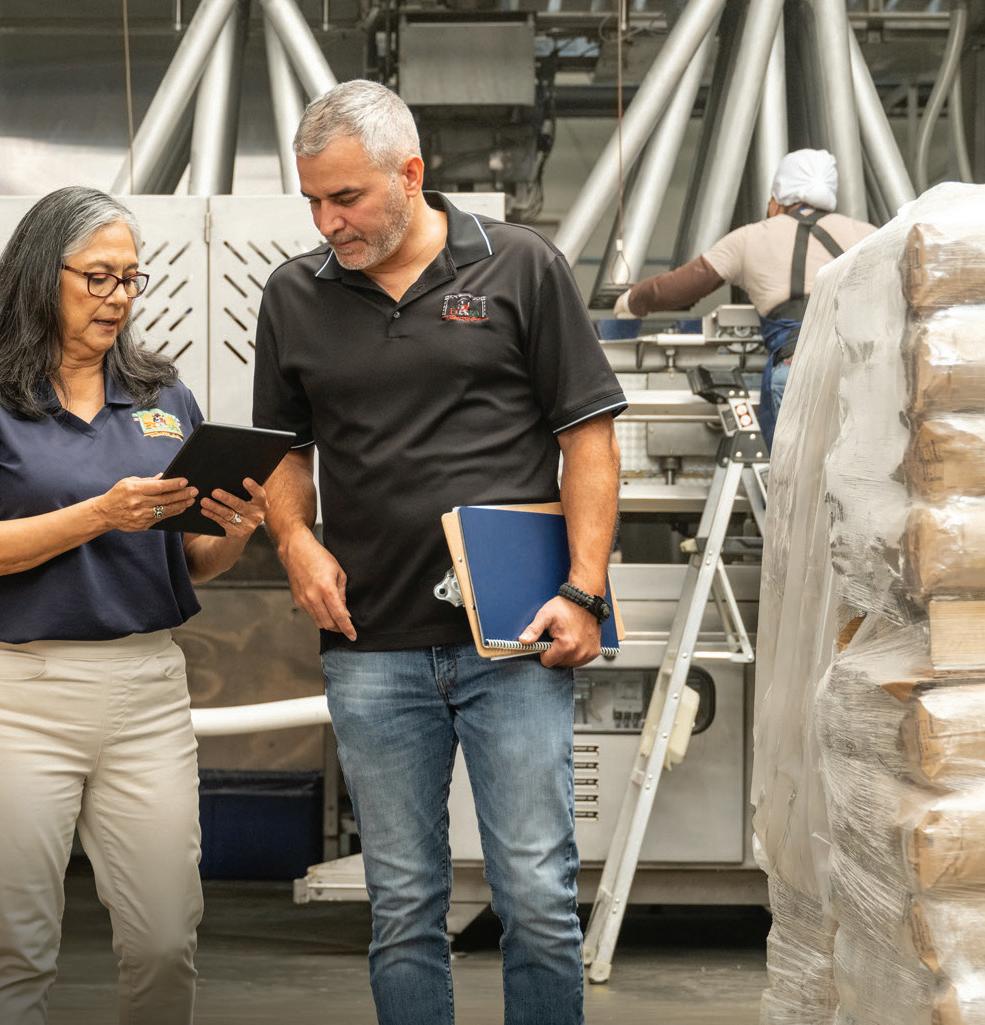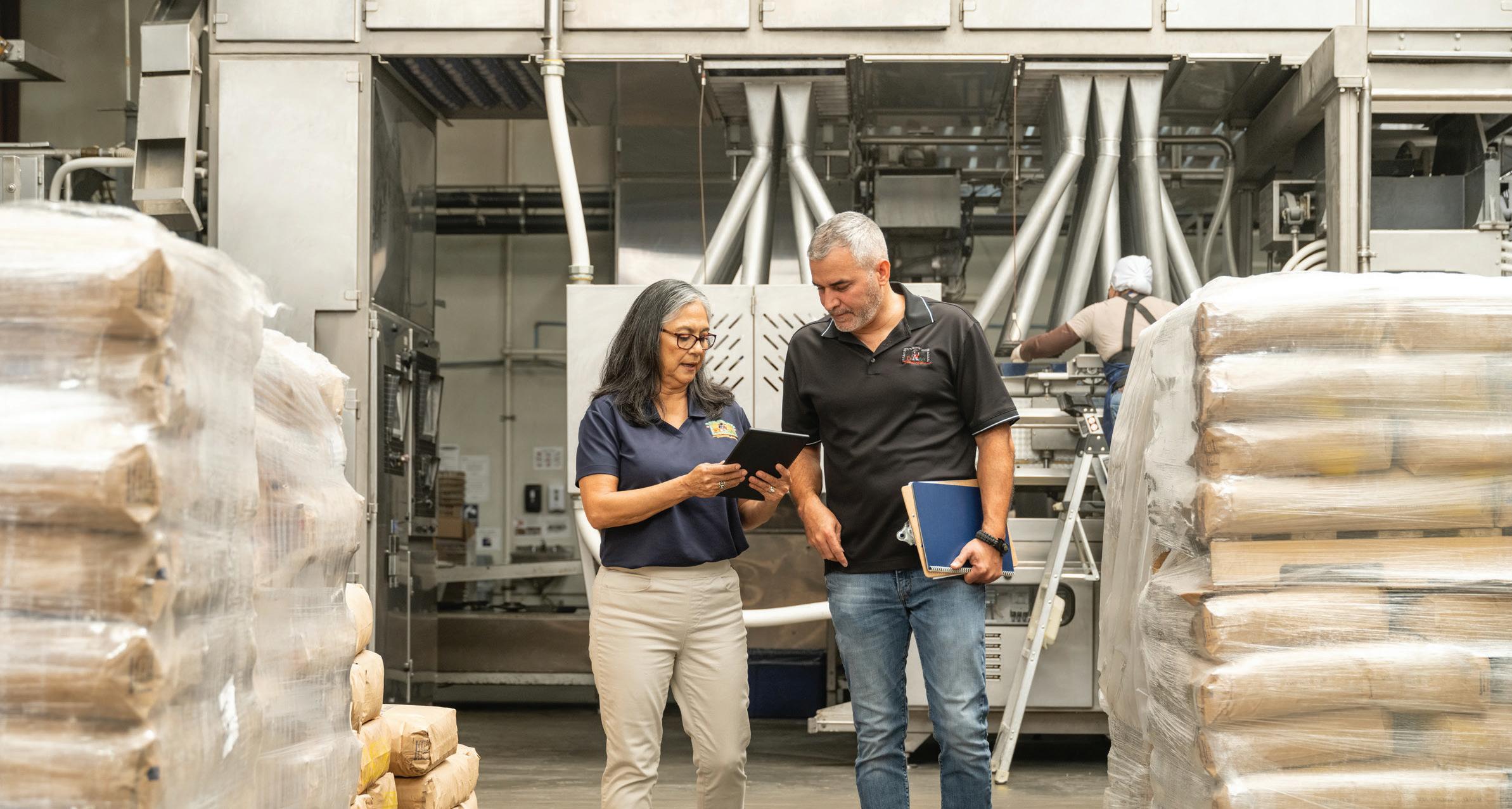











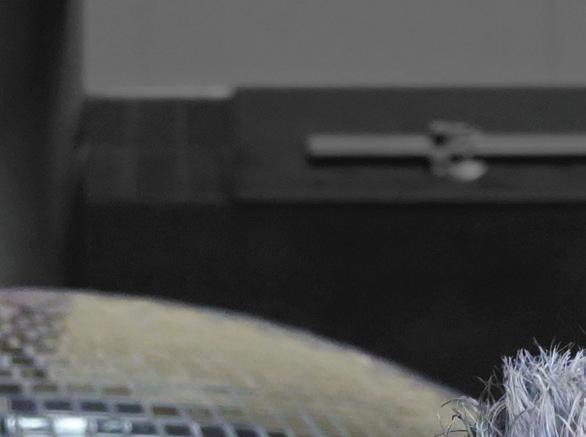








































































































































































































































By Hunter Turpin, staff writer
Milwaukee-based manufacturer Global Power Components plans to occupy and expand the former Milwaukee Journal Sentinel printing plant in West Milwaukee, and could eventually have 1,000 employees there.
The company, which makes
BY THE NUMBERS
fuel tanks, enclosures and other equipment for the power generation industry, recently received initial approval from the Village of West Milwaukee to occupy the 476,000-square-foot facility at 4101 W. Burnham St. and add a 230,000-square-foot expansion.
Time Equities, the owner of the 310W building in downtown Milwaukee, is considering plans to convert half of the building into

At a village Plan Commission meeting, Global Power leadership confirmed that the West Milwaukee facility will be an expansion of the company’s operations, which currently spans five facilities in the Milwaukee area.
Most of Global Power’s operations are based out of a facility at 2300 S. 51st St., located on Milwaukee’s south side, which is planned to remain in operation after the West Milwaukee facility opens. Most of the company’s other facilities are warehouses, some of which could be consolidated as part of this expansion, but plans for that have not been finalized, according to chief operating officer Mike Watkinson.
With more than 1,200 employees currently, the West Milwaukee facility would operate three shifts with 1,000 employees of its own, though Global Power leadership did not explicitly state if all of those jobs would be new and what types of positions they would be.
West Milwaukee Plan Commission members noted the rarity of a manufacturer expanding with such job density. The commission discussed the possibility of traffic jams during shift changes, which is something they haven’t had to consider in many years, commissioners said.
“Look back to the 1960s and ‘70s when manufacturers had more significant employment, and during shift changes, the cars
would back up. It’s exciting to get back to that,” said John Stalewski, village president.
The Plan Commission approved Global Power’s site plan, which allows the company to move forward on discussions and approvals from the Wisconsin Department of Natural Resources and others.
“The recommendation made by the West Milwaukee Plan Commission is a great step forward as (Global Power) looks to grow here in the region,” Watkinson said in a statement after the meeting. “This proposed facility, in addition to our current facilities in the City of Milwaukee, will help us serve our customers with industry-leading innovation and design.”
Pending a smooth process, the company hopes to break ground early next year, company leaders said.
The Burnham Street facility was built in 2003 and housed the Milwaukee Journal Sentinel printing operations until 2022, when the newspaper’s parent company, Gannett, shut the plant down. Later that year, the facility was sold to a subsidiary of another newspaper conglomerate for $26 million.
The property is currently listed for sale for $22.5 million or for lease by commercial real estate firm Colliers. It borders a site where frozen pizza manufacturer Palermo’s is building a new 200,000-square-foot production facility.





YOU IN YOUR
1
PETER OLESEN
President, O&H Danish Bakery | Racine
“Working as a strategic financial analyst during the (Great Recession) taught me that cash flow is a company’s lifeline. I saw firsthand how even Fortune 100 companies struggled without disciplined cash management. This experience now guides my focus on financial health and strategic planning at O&H Danish Bakery.”
2
JACOB SHULLY
Owner and general manager, Shully’s Cuisine & Events | Thiensville
“That within any organization, whether it be corporate or family business, the most successful leaders are the ones who prioritize their employees’ talent development and well-being.”
3
MAGGIE BURGHARDT
Sales and marketing associate, Burghardt Sporting Goods | New Berlin
“As a former senior IT auditor, I learned how to work hard – even when I wasn’t passionate about the work. That experience built discipline and resilience. Now, as the sixth generation of our family business, I get to pour that same energy into something I truly care about – building on the success my family worked so hard to achieve.”

4 RICK OLEJNIK
President and CEO, Cilio Technologies | Brookfield
“Working outside the family business taught me how to operate with tactical focus, free from the emotional weight of family relationships. I learned to make clear, objective decisions, deliver results under pressure, and build culture intentionally – skills that directly shape how I lead and grow Cilio today.”
5
MEGAN SAJDAK HOLTAN
Marketing director, Midwest Shoe Merchants and Stan’s Shoes | Milwaukee
“Working outside the family business taught me adaptability, accountability and the value of diverse perspectives. I gained fresh ideas, built my confidence, and learned how to lead with clarity and empathy. These skills now strengthen our family business’s culture innovation at Midwest Shoe MerchantsStan’s Shoes, Goodmiles Running Co., The Vionic Store, and Waxberg’s.”

LOCATION: Milwaukee
FOUNDERS:
Tyler Marcus and Ava Pott
FOUNDED: 2017
SERVICE:
Workforce intelligence platform
WEBSITE: gradmor.com
EMPLOYEES:
2 full-time
GOAL:
Accommodate new client base
EXPERIENCE: Both founders worked in marketing
By Ashley Smart, staff writer




MILWAUKEE-BASED software startup Gradmor is helping businesses turn employee-focused data into actionable insights.
The company is led by Tyler Marcus, chief executive officer, and Ava Pott, chief operating officer.
The UW-Madison alums founded Gradmor in 2017 while in New York City. At the time, both Marcus and Pott were working in marketing.
“We wanted to do something entrepreneurial. We both knew we didn’t want to be a CMO, and we figured data surrounding people was not well understood,” said Marcus.
Put simply, the duo wanted to create a business that helps organizations understand the impact of employee-related metrics to their bottom lines.
Gradmor was initially a consulting firm that helped tech companies use their employee data to acquire and retain the right talent. The company was growing until the COVID-19 pandemic essentially shut down New York.
Marcus decided to pivot and began toying with AI models that could help organizations predict things like performance, hiring and turnover.
In 2023, Gradmor relocated to Milwau-
kee to be closer to its client base, which has shifted from mostly tech firms to become more focused on manufacturers.
“We were like, why New York? We don’t have clients there anymore and our business model has shifted,” said Marcus.
Now, Gradmor is a software company that provides clients with proprietary AI models and a platform to collect intelligent workforce solutions.
Gradmor gathers data from sources like performance reviews and behavioral assessments, like the DISC personality test, to help companies understand which workers are at risk of leaving and who is the best fit for a particular role.
“We take their data to help them understand the factors driving hiring success. Once we have an understanding of what that data is, they need a model and software to execute,” said Marcus.
Manufacturers have become more interested in leveraging data to help boost the productivity of their workforce. In one case, Marcus said Gradmor has been able to help a local manufacturer cut down the time it takes to fill an order from an hour to 30 minutes.
“They can see huge business value from an operations standpoint, not just from an HR standpoint,” he said.



“Growing up in a very entrepreneurial family and then seeing my parents’ success with franchising at Orangetheory, I knew it was kind of always something I wanted to do.” – Riley
THE FRANCHISE: Jupiter, Florida-based Scenthound is a membership-based dog wellness franchise that provides routine hygiene and grooming services at a monthly rate. Since its 2015 founding, the brand has grown to 135 locations, or “scenters,” with signed agreements in 29 states.
2022: Riley Scharnek graduates with a bachelor’s degree from UW-Madison and enters the corporate world, eventually landing a full-time job at Kohl’s. The same year, her dad, Kevin Scharnek, who brought Orangetheory Fitness to Wisconsin in 2014, sells his enterprise of eight studios to private equity.
LATE 2023: From conversations with Riley about her next career move and interest in entrepreneurship, Kevin agrees to help his daughter become a franchisee. They begin researching brands that fit Riley’s interests and the local market.

Scenters are designed to reduce dogs’ anxiety, including a clean, sound-proof lobby, free from the sounds of blow dryers or barking.
SEPTEMBER 2024: Having decided on the Scenthound brand, the Scharneks visit the company’s headquarters in Florida and meet with its founders and corporate team. They closed on a five-unit franchise deal just weeks later.
MARCH 2025: The Scharneks sign a lease for a storefront in Wauwatosa at 6650 W. State St., with plans to open their first location in late summer. Additional “scenters” will open later in Brookfield, Pewaukee, Shorewood and Menomonee Falls.
THE FRANCHISE FEE: $49,900
Riley Scharnek (center) with her parents and investors, Kevin and Tracey Scharnek, and dog Phoebe. As franchise partner, Riley will oversee the day-to-day operations of what will be five Scenthound locations, while her parents – who found success as Orangetheory Fitness franchisees – provide financial backing and operational guidance.
A monthly visit to Scenthound includes a bath, ear cleaning, nail clip and teeth brushing. Customers get an assessment of their dog’s health through a 6-point S.C.E.N.T check.
“We’re not doing this because it’s cool to do something for one of our kids, we’re doing it as an investment.” – Kevin
“One of the big factors of deciding on Scenthound – beyond our passion for wellness and our love for dogs – was the corporate support behind it. … they build out extensively to set their franchisees up for success.” – Riley












“Great people raise the performance of everyone around them, making it critical for a leader to surround themselves with people superior to themselves…”














Education:
Bachelor’s degree in construction administration, University of Wisconsin; MBA, UW-Milwaukee
How do you see the future of your industry?
“I foresee the future of construction and construction services centering on leveraging robotics and artificial intelligence to solve the current manpower shortages.”
If you could choose any other career path, what would you want to do?




This Q&A is an extended profile from the 2024 edition of Wisconsin 275, a special publication from BizTimes Media highlighting the most influential business leaders in the state. Visit: biztimes.com/wisconsin275 for more.
“Ferrari test driver. I have a passion for motorized recreation, and Ferrari is the pinnacle within their respective market. Throughout their storied history, they have not compromised their brand for the sake of short-term gains. They have traditionally, and some would stay stubbornly, refused to alter their mission of maximizing the interaction between human and machine, while fueling their customers’ passion towards their product.”
What advice would you give to someone going into a leadership position for the first time?
“People have a multiplier effect, which is good and bad.

President and CEO


CG Schmidt MILWAUKEE





Great people raise the performance of everyone around them, making it critical for a leader to surround themselves with people superior to themselves, while embodying the same core values that you and the organization are built upon. Competing values are a death sentence to any corporation.”
What is your favorite Wisconsin destination?
“For me, Wisconsin is my favorite destination. There is so much variety and beauty in our state, I don’t think we realize how lucky we are. I have been blessed that my work has taken me to every corner of the state, and each area is uniquely different.”
Is there anything new that you would like to learn this year?
“I need to learn another language. I had years of German in school, but I never kept it up. I have friends who travel around the world and challenge themselves to learn the language well enough to get by, and I would like to follow their lead.”
The latest area economic data.
A total of 1,368,580 passengers traveled through Milwaukee Mitchell International Airport during the first quarter of the year, which is 10.3% lower than a year ago.


• H. Fisk Johnson, chairman and CEO of SC Johnson
officer of global e-business for Procter & Gamble





Wisconsin’s total imports in the first quarter increased more than 9% to $10.5 billion. Wisconsin’s unemployment rate is at 3.3%. The Milwaukee Bucks had total regular season attendance of 732,014 at Fiserv Forum during the 2024-25 regular season, an average of 17,437 per game, down 1.2% from a year ago.
Last year, the overall tonnage that passed through Port Milwaukee was 2,232,529. That’s down 5.2% from total tonnage of 2,355,343 shipped through the port in 2023.
• Gerard Arpey, retired CEO of AMR Corp. and American Airlines
• Sean Connolly, president and CEO of Conagra Brands
• Alexander Cummings Jr., retired exec VP and chief administrative officer of The Coca-Cola Company
• Gina Goetter, chief financial officer of Hasbro Inc.
• Deb Henretta, former president and senior executive
• Helen Johnson-Leipold, chairman and CEO of Johnson Outdoors, chairman of Johnson Financial Group, chairman of The Johnson Foundation at Wingspread
• John Jeffry Louis, former chairman of Gannett Company, former chairman of Parson Capital Corp.
• G. Scott Uzzell, general manager of Nike North America
BIZ POLL A recent survey of BizTimes.com readers.
Is the site between I-94 and South 27th Street, south of Elm Road, in Oak Creek appropriate for a proposed Bucee’s travel center?

Share your opinion! Visit biztimes.com/bizpoll to cast your vote in the next Biz Poll.
By Sonia Spitz, staff writer
OCONOMOWOC-BASED Silver Lake Auto & Tire Centers recently opened its new Grafton location, expanding its southeastern Wisconsin footprint to six locations, in Brookfield, Hartland, Muskego, New Berlin, Grafton and Oconomowoc.
Along with its 24/7 towing service headquartered in New Berlin, all locations operate under the leadership of brothers and co-owners Dan Garlock, CEO and president, and Darren Garlock, vice president.
The Garlock brothers have overseen the company since 2015. Silver Lake’s core values – family, integrity, hospitality, growth, initiative and professionalism –have allowed the Garlock brothers to operate the repair shops as a team and prioritize growth as the company eyes more expansion in the next five years.
The Silver Lake name was first brought to Wisconsin in 1973 as a gas station and repair shop, called Silver Lake Shell. Dan and Darren’s father, Walter “Wally” Garlock, a former military mechanic, opened
While operating Silver Lake’s two locations, Dan and Darren made plans to buy their father out of the company using a Small Business Administration loan. In doing so, the brothers took over as co-owners, with plans of expanding ahead, and Wally could retire.
Dan and Darren decided that the best way to transition the business was to formulate a family-oriented plan of operation to lay a foundation for successfully operating a multi-unit business. In a conversation between Wally, Dan and Darren, the three decided via a verbal contract that the business would operate under the principles of trust, healthy conflicts and shared autonomy.
“We needed enough oxygen for all of us to breathe inside of Silver Lake Auto,” Dan said.
Silver Lake Shell and named it for its place on Silver Lake Street in Oconomowoc. In 1991, the company moved to its current flagship building at 36355 E. Wisconsin Ave. in Oconomowoc.
Although Dan and Darren joined the business as employees years later while they were in high school, the two were no strangers to the company growing up.
“We’ve been around the business since we could walk,” Dan said.
The brothers worked alongside their dad until the time came for the company to transition ownership as Wally approached retirement. In 2013, two years before Wally retired, Dan and Darren decided to open Silver Lake’s second location at 30620 County Road VV in Hartland. The decision to open another location came both from a “gut feeling,” Dan said, and the need to support their three growing families, Darren added. The two decided to divide and conquer, focusing primarily on one location each.
has helped the shops succeed by reputation, something essential in the industry, Dan said.
“We have each taken on a role that plays to our strengths,” Darren said. “Our success comes from trust, respect and smooth communication – every decision is made with a shared vision and constant support for one another.”
Led by Dan’s risk tolerance and entrepreneurial spirit, the company anticipates nearly doubling its employees in the next five years. Currently, Silver Lake Auto employs roughly 70 people. By 2030, the company expects to employ close to 120 people across seven or eight locations.
After aligning their mission, vision and core values, Dan and Darren began brainstorming new locations for the company to expand into. Between 2015 and 2023, Silver Lake opened its Brookfield location at 17495 W. Capitol Drive, its New Berlin location at 15650 W. National Ave., and its Muskego location at S73 W16610 W. Janesville Road.
Silver Lake Auto opened its Oconomowoc, Hartland, Brookfield, New Berlin, and Grafton locations from scratch, and the business acquired its Muskego location, a former Bridgestone/Firestone dealership and auto repair shop known as Muskego Tire & Auto that opened for business in 2000.
Among the many things that contributed to Silver Lake’s expansion, Dan attributes much of the success to the leadership’s ability to manage the company’s balance sheets and its internal and external net promoter scores, a measurement of customer loyalty.
“We’re promoting Silver Lake Auto from the inside and out,” Dan said.
Customer service and rapport between team members
While Silver Lake has not yet decided exactly where its next locations will be, its goal is to focus on the suburban Milwaukee market in which it has thrived for 52 years.
While the company continues to plan for growth, Dan has some inhibitions about the ease of expansion in the coming years.
“It’s going to be hard for business owners in the next five to six years,” Dan said. “We just have to persevere.”
Among the challenges business owners may face, Dan is most concerned with the volatility of the market as well as declining consumer confidence.
Silver Lake’s family values will remain part of its growth trajectory. Both of Dan’s sons, 16 and 18, are already involved in the business with hopes for them to take over as the third generation of Garlock ownership.
Looking forward, the Garlocks intend to remain focused on the company’s core values and recognize the importance of company culture, while navigating the emotional dynamics and conversations that often arise in a family business setting.
“Family values don’t need to go, but they will need to change,” Dan said. “Families can be messy, but it’s important not to lose love.” n
CAMPBELL CONSTRUCTION, a family-owned business and newly established ESOP, has proudly partnered with GS Global Resources to expand their machine performance solutions factory. This expansion marks a significant milestone as GS Global Resources celebrates over fifty years in operation in the Mukwonago community.
GS Global Resources has been a cornerstone of the Mukwonago industrial park since 2016, and this expansion not only benefits their growth but also strengthens our community. As a full-service, selfperforming general contractor, Campbell Construction was eager to contribute to this project right in our own backyard.
The project, which began in July 2024, is a
69,000 square-foot addition to GS Global Resources, providing them with an expanded warehouse and office space. Through the meticulous oversight of our project manager, Matt Bautch, and superintendent, Dean Janke, we are on track to complete the project in June 2025.
Campbell Construction and GS Global Resources share similar philanthropic mindsets, raising funds for various charitable organizations within the local community, plus the success of this expansion has paved the way for Campbell Construction to secure several other local projects, including one very similar in size and industry.
We remain committed to fostering strong local partnerships and providing top-notch services such as
project estimating, design-build, and design with buildlease back options. We eagerly anticipate continuing our collaboration with existing partners and welcoming new ones.


A ONCE-THRIVING industrial cornerstone on Milwaukee’s northwest side is entering a new chapter.
The former Master Lock campus, which closed its doors last
year after more than eight decades of operation, was sold to a new-tomarket redevelopment firm from the St. Louis area that aims to find new tenants to fill the space.
Commercial Development Co.,

a redevelopment firm making its first foray into the Milwaukee market, purchased the 26-acre property at 2600 N. 32nd St. for $2.6 million, a transaction that included machinery and equipment.
The former Master Lock complex, located at 2600 N. 32nd St., on Milwaukee’s northwest side.
CDC plans to refill the space with new industrial space users. The company said the building is an attractive option, because of its location and development attributes, including three 20-ton freight elevators and fully fenced and secured premises, according to a statement from CDC.
“Our acquisition of this retired manufacturing plant is the first step to restoring the property to productive use – our team is well equipped to reposition this site for its next stage of life, likely to be industrial operations,” said Adam Kovacs, executive vice president of acquisitions for CDC.
However, some local industrial real estate experts are more cautious in their optimism for the site.
“There are obvious challenges that properties in that location have,” said Jim Barry III, president of Milwaukee commercial real estate firm The Barry Company.
Chief among them is limited access to the freeway, a perception of crime in the area and comparatively higher taxes in the city of Milwaukee. Additionally, some of the buildings on the property date back to the early 20th centu-

Cedarburg is replete with historic buildings. Buildings with elements of European architecture like Italianate, Greek Revival and Queen Anne line the city’s downtown. At the corner of Portland and Columbia roads, however, the influence of Japanese architecture is clear.
Built in 1926 as a filling station for Wadham’s Oil and Grease Company of Milwaukee, the building is complete with pagoda cupolas on the roof, adorned with hanging lanterns.
Designed by Eschweiler & Eschweiler, the firm behind some of metro Milwaukee’s most iconic buildings, the Cedarburg building is today occupied by Pagoda Fine Jewelry.
ADDRESS: N58 W6189 Columbia Road, Cedarburg
OWNER: Kay R. Walters Revocable Trust
ASSESMENT: $135,200

ry, which can be harder to retrofit for modern manufacturing.
With 780,000 square feet of industrial space, the fully fenced property includes a mix of singleand multi-story warehouses as well as parking lots and undeveloped land that could be used for additional buildings.
In a tight industrial real estate market metro wide, large blocks of space can be attractive, though, and considering the Master Lock property’s energy capabilities and features, such as cranes, some brokers said the space could be an attractive option for another manufacturer, probably a local company already in the city.
“This could be a hidden gem for the right company,” Barry said.
CDC said it plans to retain the property’s existing buildings and find new users, including for manufacturing but also logistics, industrial storage and self-storage.
Industrial brokers said, however, that the site may struggle to attract logistics or distribution users due to its two-mile distance from the freeway and numerous intervening traffic lights.
As for industrial or self-storage, some community organizations are concerned those uses won’t make up for the 330 union jobs lost when Master Lock closed.
“There is a need for jobs in the community,” said Cheryl Blue, executive director of the 30th Street Industrial Corridor’s Business Improvement District. “Master Lock had a history of having great jobs on this site for over 100 years, and we would like to see that continue.”
Blue said her primary concerns are making sure that the environmental contamination at the site is cleaned up, that the buildings do not fall into disrepair and that there is transparency and communication between the BID and its partners in the community and the new owner and its prospective buyers or tenants.
“We want the redevelopment of this site to be something geared towards the higher aspirations for the neighborhood and the historic businesses in the 30th Street
Industrial Corridor,” Blue said. “We believe that redevelopment should contribute to activating the area in a positive way.”
Founded in 1990, CDC is a privately held real estate acquisition and development firm that specializes in repositioning and redeveloping underutilized, distressed or environmentally challenged properties. In Maryland, the company is planning to bring logistics facilities to a former steel mill, according to its website, and, in Massachusetts, the company is hoping to develop an offshore wind manufacturing hub on the site of a former coal power plant.
However, that’s not the case for several CDC-owned properties — including one in Wisconsin.
The company purchased the former 115-acre General Motors assembly plant in Janesville in 2017 and, in 2019, demolished the site’s existing buildings. Still undeveloped, the City of Janesville in 2024 initiated a process to condemn the property, saying it was blighted and that CDC was delinquent in its property taxes, according to city documents. In April, the city made an offer to purchase the property in hopes of finding and supporting development plans.
CDC did not respond to requests for further comment.

Milwaukee-based Mandel Group is planning to break ground in the coming months on an apartment complex development in Greenfield.
The property is currently occupied by the mostly vacant Spring Mall, which Mandel plans to demolish and replace with 257 market-rate apartment units in two-story “garden-style” buildings.
The development will be called Cold Spring Crossing and is slated to have a mix of studio, one-, two- and three-bedroom units centered around a courtyard with amenities including a pool, plans show.
Approximately three years ago, Amazon presented Greenfield officials with plans to build a distribution facility on the site and later dropped those plans. After another apartment proposal for the site also fell through, the city purchased the site and issued a request for proposals.

HUNTER TURPIN Reporter



Presented it’s 11th annual:
The 2025 BizTimes Media Family & Closely Held Business Summit on June 4 at the Brookfield Conference Center will provide attendees with actionable insights to grow their own companies. The event features a keynote conversation with Jane Blain Gilbertson of Blain’s Farm & Fleet detailing key moments from her own family business journey. A panel discussion with Craig Bald of ITU AbsorbTech, Craig Jorgensen of VJS Construction Services, Peter Olesen of O&H Danish Bakery, and Katie Poehling Seymour of First Supply will go deeper on topics like generational transitions, company culture and family business governance. Breakout sessions will give attendees a chance to focus on areas like relationships with financial partners, legal issues and transition planning pitfalls.
Thank you to our sponsors Meissner Tierney Fisher & Nichols s.c., and Tri City National Bank and partner Annex Wealth Management for making the event possible. Thank you also to our event partners Forums for Family Business and the UW-Madison School of Business Family Business Center.

For over 175 years, Wisconsin’s family-owned and closely held businesses have trusted Meissner Tierney Fisher & Nichols S.C. for expert legal counsel throughout every stage of the business lifecycle. From choosing the right business structure and managing operational complexities to planning and executing smooth successions, our attorneys deliver exceptional service and strategic guidance. Our clients also benefit from our deep expertise in business tax law—rooted in our attorneys’ direct involvement in the development and drafting of key tax statutes and policies. We are dedicated to equipping our clients with accurate, actionable insights, empowering them to make sound decisions that protect and sustain their businesses. mtfn.com
(414) 273-1300
Partner:

To the innovators.
To the creators. The builders.
To the pioneers.
To the doers.
To the relentless, won’t-take-nofor-an-answer types.
To the first ones in, last ones to leave.
To the sole proprietors.
To the trailblazers. The entrepreneurs.
To the business owners.
To the dreamers.
You inspire us.
We share your roots. Your passion.
We started small, too.
And we always remember those humble beginnings.
So go ahead. Make those dreams.
We can make them come true.
To learn more about how we can help your business grow and thrive, visit tcnb.com/business.
Ivan Gamboa | Senior Vice President | Chief Commercial Lending Officer Commercial Lender 414.325.1182 | i.gamboa@tcnb.com
Markets go up and down. Your financial plan should be ready for either possibility – and consider more than the markets. Big ideas like when you’ll retire, tax consequences, your legacy and how you’ll maintain your lifestyle. Annex Wealth Management’s team is ready to plan for what’s next.
Annex Wealth Management is a fee-only RIA which seeks to make financial journeys better through fiduciary advice, customized strategies, and empowering education. We’ve assembled an in-house team with expertise in many critical areas of wealth guidance, and we’re ready to listen to your unique needs.
If you’re concerned about how you’ll manage it all yourself – or looking for a second opinion on your current direction – let’s talk about where you are and where you’re headed.
Annex Wealth Management annexwealth.com (262) 786-6363














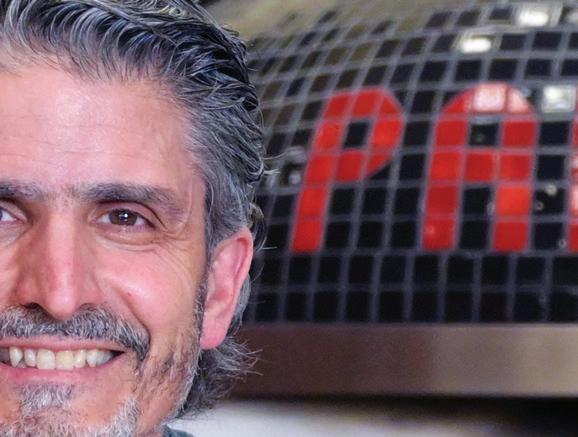

























Fallucca family fi nds room for all within their Palermo’s pizza empire



BY ASHLEY SMART,
staff
writer



If you ask each member of the Fallucca family whether they are a supporter of family business or not, you’re going to get very different answers.
For three generations now, the Fallucca family has operated and grown Milwaukee-based Palermo Villa Inc. into one of the country’s most successful frozen food manufacturers.
Just within the past two years, the company unveiled plans for two new manufacturing sites in Jefferson and West Milwaukee, creating a total of 250 new jobs. Palermo’s, on track to have annual revenue of $1 billion by 2028, now employs more than 1,400 people.
Still, Giacomo Fallucca, board chairman and CEO of Palermo’s, is unflinching when he says he is not a big believer in the model of family-owned and operated entities.
“Generally, in family businesses, there’s so much dysfunction among family members and I think familiarity can breed contempt,” said Giacomo.
Palermo’s began in 1964 as an Italian bakery on Milwaukee’s East Side, founded by Gaspare “Jack” Fallucca and his wife, Zina Fallucca. They opened a pizzeria and restaurant in 1969 and began making frozen pizza and pizza bread in 1979 at a facility on the city’s south side.
In 2006 the company opened a new, 137,000-square-foot headquarters plant at 3301 W. Canal St. in Milwaukee’s Menomonee Valley. In 2011 the company expanded the facility to 250,000 square feet.
In 2017, the company acquired Carol Stream, Illinois-based Connie’s Naturals LLC, adding Connie’s frozen pizza to its product line. The company’s portfolio also includes the Screamin’ Sicilian Pizza, Urban Pie Pizza Co., Surfer Boy Pizza and Funky Fresh Spring Rolls brands.
In 2023, Palermo’s expanded again, moving into the 30,000-square-foot former Tyson Foods plant at 1015 Industrial Ave. in Jefferson, which had been shut down in 2021.
Giacomo took over as head of the family business in 1982. By that time, both he and his younger brother, Angelo Fallucca, had already gained years of behind-the-scenes experience.
Giacomo began helping at his parents’ restaurant in seventh grade. He worked his way up from busboy, to dishwasher, to cook. Angelo was only in second grade at the time and Peter, the oldest of the three brothers, was more interested in academia.
“I just happened to be in the right place at the right time from an age standpoint,” said Giacomo. “My father sold the restaurant when I was 17. Angelo was 12, so it just worked out well.”
For both Giacomo and Angelo, some of their earliest memories included the East Side pizzeria.
“As a kid, our mom took us to the restaurant at seven in the morning,” said Angelo, who now serves as president at Palermo’s. “We’d start by making dough, and then we used to make the sauce, and then the lasagna and cannoli shells.”
The restaurant’s parking lot and a nearby library served as Angelo and Giacomo’s version of a



































































playground when there was spare time.
For both boys, there was never a thought that they’d work anywhere besides the family business.
As Palermo’s grew and their parents took a step back from the restaurant, selling the original pizzeria in 1979 to establish the frozen pizza company, it was a natural progression for Giacomo, and then Angelo, to add to their existing responsibilities.
“There was always this thought that I’d be in the family business forever,” said Angelo. “My father had an exit strategy very early on. He said, this is your business, and I’m going to leave this up to you.”
Angelo takes a more neutral stance when it comes to the family business model. As his son and daughter begin considering what their future careers might look like, Angelo sees the potential pitfalls of having so many family members working together. Still, he believes a family business can be successful.
“I don’t want to hurt (my kids’) feelings, so I know I’m going to back off a little bit,” said Angelo. “I’m not anti-family business. I think it’s just something that you have to do right.”
When Palermo’s first formed a board of directors nearly 25 years ago, the late board member and family business adviser Walter Winding gave Giacomo a piece of advice he’s never forgotten.
“(Winding) would have horror stories (about family businesses),” said Giacomo. “He said one of the most important things you can do is build underlying goodwill with your family.”
Building goodwill can be as simple as being inclusive, being transparent and being respectful to








fellow family members in the business. Little actions add up, Giacomo explained.
The way discussions and disagreements are handled can also help build goodwill. While it’s easy to be prideful, the Falluccas have always put the interest of the company first, said Angelo.
“We don’t always get it right, but I think for the most part, we make it work,” said Angelo.
Each Fallucca has maintained their unique leadership style but learned to be “hands off” when it comes to certain areas of the company. This allows each family member to run their respective segments. Large decisions are still discussed among the entire family.
“We don’t really treat (Palermo’s) as a family business, but more like we’re privately held,” said Angelo.
Giacomo also believes working with family can cloud a person’s judgement and says some distance in a business setting is ideal.
“I believe in any business, someone has to be in charge, and someone has to call the shots at the end of the day,” said Giacomo. “That’s where it ends, and that was my responsibility.”
Growing up in the family business, Angelo said their late father taught them not to place importance on what their position was.
“We all kind of naturally fell into our own area of expertise,” he explained.
While Giacomo focused more on the sales and administrative side of the business, Angelo was more on the manufacturing and operations side. They played to their own strengths in those earlier years. Now, the third generation of Falluccas

























working at Palermo’s looks to do the same.
Giacomo’s two sons, Jasper and Nick Fallucca, each have prominent positions within the company. Much like their father and uncle, they began working for the company in their youth.
Jasper, director of business development at Palermo’s, began working for the company in high school. At 16, he started running booths at local events like Wisconsin State Fair, and every day presented a new challenge.
“It was dealing with a lot of adults and you’d have to stand firm and have a lot of tough conversations,” said Jasper. “It was a lot of problem solving. It was a really great baptism by fire of what a business is.”
Nick, chief product and innovation officer, also grew up working the Palermo’s booths and gradually began to do “more and more” within the business.
“It was kind of all I knew,” he said.
He learned a touch of everything in those early years: management skills, how to order inventory, event planning, customer service and more.
BUSINESS IS DIFFICULT enough with managing your staff, competing for customers, and controlling costs. Now business owners need to worry about sophisticated fraud attempts hitting at alarming rates. From phishing and account takeovers to check fraud, no business is safe as criminals target companies of every size across all industries.
Advanced treasury management fraud prevention tools are essential in today’s digital business environment. These financial solutions monitor transactions, provide enhanced verification processes, and establish protective barriers that help you identify suspicious activity before it becomes a costly problem.
No single solution can stop every threat, but a customized, layered combination reduces your risk of fraud. We often recommend a combination of tools to First Business Bank clients:
» Positive Pay – Validates checks against your records before payment
» ACH Filters – Lets you approve or deny electronic debits
» Lockbox Services – Routes check payments to a secure site, reducing check fraud
» SecureLOCK™ Equip – Provides real-time control of business debit cards
When enhanced with dual approvals, customized user permissions, and automated alerts, these tools create a solid security framework that works behind the scenes while keeping your processes efficient and your accounts secure.
While technology is essential, strong internal controls are equally important. Criminals often exploit human behavior and find gaps in oversight. We recommend low-tech best practices like reviewing user access, rotating responsibilities, and training staff to recognize red flags to reduce the vulnerability of your business. Many clients find that this employee awareness becomes their strongest defense against emerging threats.
At First Business Bank, we deliver expertise along with innovative tools to help you use them to your advantage. Our experienced team works closely with businesses of all sizes to design tailored fraud
prevention strategies that align with your specific operations and risk profile. Our clients value our consultative approach, with regular check-ins and updates on the latest fraud mitigation solutions.
First Business Bank is ready when you are. Let’s talk about the advanced fraud prevention your business deserves to protect your hard-earned finances. Member FDIC.

Nick never had the intention of joining Palermo’s. He aspired to go to culinary school, but he eventually decided a business degree would serve him better. As his family needed more help with tasks ranging from marketing and sales to manning the pizzeria, he slowly became more engrained in the business.
“I grew into my role by doing a whole bunch of needed activities,” said Nick. “I’ve been here since.”
His love for food naturally tied to the product development side of the business. During the time he spent working in sales, he had to learn what makes a product work and how different pizzas reacted in varying environments.
“I’ve had different roles, but I’ve always (been part of) research and development,” said Nick. “That’s probably my number one niche, along with general innovation.”
Jasper didn’t have immediate plans to join his family’s company. Instead, he ended up studying finance and was working in Manhattan up until the COVID-19 pandemic.
“Especially being early on in my career, not being in the office for two years was not something I wanted to do,” said Jasper.
Luckily, there were some ongoing projects at Palermo’s that allowed him to get into the business. One of those projects was the acquisition of the Funky Fresh Spring Rolls brand in 2022.
Both Jasper and Nick echo the sentiment that the business can only work if each family member takes a step back, stops themselves from micromanaging, and owns their strengths.
Having a shared vision and goals has also allowed the Fallucca family to keep putting the company first.
“I think that’s really important, because if you go into a business with your family … it’s tore a lot of families apart,” said Jasper.
Palermo’s latest expansion project, a new 200,000-square-foot production facility in West Milwaukee, is scheduled to begin production in July. The 20-acre parcel was formerly the site of the Froedtert Malt Corp. plant, which was last operated by Malteurop until it was shut down in January 2022.
Core to the new Palermo’s facility is proprietary manufacturing equipment that was flown in from Italy. Palermo’s is the only company in North America that has this specialized equipment, which creates a high-hydration dough that ferments over a 24-hour period. This process breaks down the gluten in dough to provide an airier, lighter and crispier crust.
The Falluccas sourced this specialized equipment during their travels overseas. The family travels to Italy several times a year for both business and leisure. They also occasionally make trips to other food-centric destinations, including Tokyo and Mexico City.
“We saw this Roman style of pizza, this street food, and we fell in love,” said Nick. “We loved its lightness and airiness and crispiness, and the ability to digest it better.”






FOR MANY FAMILY-OWNED BUSINESSES, succession or exit planning isn’t just the final chapter, it’s an opportunity to shape the future with intention. When it comes to that future, nothing is more valuable than having the right mindset.
Stephen Covey said it best, “Begin with the end in mind.”
We agree. Yet, while most business owners (99%) recognize the value of a transition strategy, 79% still have no written plan1.
Passive strategies typically fail because they react to change instead of shaping it. Waiting to plan your business exit can leave your financial future, personal freedom and business legacy vulnerable to timing, market conditions and external forces. For instance, 50% of exits are involuntary—triggered by death, disability, divorce, disagreement, or distress.1
Up to 80% of businesses that go to market never sell, and of the few that do, only 10%1 receive expected value. But here’s an opportunity: a proactive approach can help shift the odds, creating a successful and meaningful transition.
According to research, 55% of owners take less than two weeks’ vacation annually—and most continue to work through that.2
Successful transitions often involve building a business of significance, a company that is ATTRACTIVE to buyers and READY to transition. Freedom is more attainable when you align your business value with your personal, financial and legacy vision. Having a team with the expertise and ecosystem to connect your business assets to your personal and financial framework can enhance clarity, reduce silos, lessen friction and improve decisionmaking. Alignment isn’t just a luxury, it’s a strategic advantage.
Members of Beauchamp Maleki Group use Beauchamp Maleki Group as a marketing name for doing business as representatives of Northwestern Mutual. Northwestern Mutual Private Client Group is a select group of NM advisors and representatives. Beauchamp Maleki Group and Northwestern Mutual Private Client Group are not a registered investment adviser, broker-dealer, insurance agency, federal savings bank or other legal entity. To view detailed disclosures regarding individual representatives, view their information at bmg-nm.com.
State of Owner Readiness – Exit Planning Institute. (n.d). exitplanning-institute.org/state-of-owner-readiness.
2 Ipsos and Oxford Economics. (2019). PAID TIME OFF TRENDS IN THE U.S. ustravel.org/sites/default/files/media_root/document/ Paid%20Time%20Off%20Trends%20Fact%20Sheet.pdf.
731 N Jackson St., Ste 200 • Milwaukee, WI 53202 (414) 270-1890 • bmg-nm.com
When the family realized they couldn’t incorporate this new equipment into one of their existing facilities, they decided it was time to construct a new one.
The specialized dough will eventually be used to create a high-fermentation, wood-fired pizza. A final product is still being worked out, and Palermo’s plans to make a formal product announcement by the end of the year.
“We have a product that we assume will be the (final) product, but until we get in the facility and have our chefs and food scientists start experimenting with what this technology can do, we won’t know,” said Nick.
Palermo’s had a team of employees traveling back and forth to Italy over the past year to train on the new equipment.
Once it’s fully running, the West Milwaukee plant will produce 50 million pounds of product, both dough and pizzas, annually. The West Milwaukee plant will make pizzas in a variety of shapes and sizes.
One large production line will make dough. Another will place toppings on the pizza. The West Milwaukee site will also support Palermo’s recently launched food service business. The company plans to provide specialized dough, crust and pizzas to clients like universities and sports venues.
“Our lines are specially designed (in Milwaukee) to make a 12-inch pizza that goes in the grocery store,” said Nick. “At the other facility, we’ll be able to do different things, whether the product goes to restaurants, or elsewhere.”
The company will review the possibility of an addition in West Milwaukee within the next two to three years.
Acquiring a majority stake in Funky Fresh Spring Rolls was a pivotal moment for Palermo’s expanding its frozen foods business.
Funky Fresh Spring Rolls was founded in Milwaukee in 2013 by TrueMan McGee. The brand partnered with Palermo Villa Inc. in 2022 to expand its reach.
After taking a step back from a 150-store test market in 2023, the Funky Fresh team took time to refine product lines and packaging based on consumer feedback. Funky Fresh officially returned to stores last August and is now in 400 stores nationally.
McGee knew from the moment he met Giacomo in 2018, as he served as a moderator during a food business panel, that he wanted to work with him.
“(Giacomo) reminds me of myself,” said McGee. “He’s energetic, and he’s such a big dreamer as well.”
Now, he says his relationship with Jasper, who heads up the partnership between the two brands, is just as strong.
“We work together daily. (Jasper) is like my new

little brother,” said McGee. “They say it’s a family of brands and they really treat you like family.”
Jasper says the partnership between Palermo’s and Funky Fresh is “exactly where we planned it to be.”
After decreasing cost by nearly 40%, introducing a smaller packing format and swapping out the co-manufacturer for Funky Fresh, the team is now focused on bolstering “consumer adoption.”
“It’s so impactful when someone really buys into TrueMan’s story,” said Jasper. “They want him to succeed, which allows us to focus on what we do really well: the back-end logistics of how to make it, distribute it, sell it and market it.”
The Funky Fresh partnership is certainly not the last frozen food offering Palermo’s is looking to add to its portfolio.
“We’re exploring a variety of platforms throughout the grocery store, outside of frozen (foods),” said Giacomo.
As Palermo’s looks to continue growing its brand exposure, the company is constantly pur-
suing a variety of licensing agreements with wellknown companies. Palermo’s brainstorms 50 different innovations each year.
A noteworthy licensing partnership for the brand was announced back in 2022, when Palermo’s partnered with Netflix and Walmart to bring Surfer Boy Pizza, featured in the hit Netflix show “Stranger Things,” to life.
In the past, Palermo’s also considered partnerships with Johnsonville and Leinenkugel’s, but those projects were scrapped due to complications that arose during the pandemic.
The company’s latest licensing partnerships have led to two new frozen pizza lineups. The first line includes four pizzas made with Ragú pasta sauce. The second is a line of three pizzas that feature Cheez-It flavored crust.
Each product took more than a year to develop. Palermo’s even invested in new tooling so the company could manufacture the Cheez-It crust in the brand’s iconic square shape.
“Being able to leverage the brand assets that Ragú and Cheez-It has is pretty incredible,” said Jasper.

I FOUNDED UZELAC INDUSTRIES 2003 by taking a leap of faith and acquiring Poja Sheetmetal in 2003. Since then, our story has been one of transformation. We acquired Duske Engineering in 2006 (a key customer at the time) and have gone from a three-person contract fabrication shop to a thriving 26-employee capital equipment manufacturer with a growing national footprint. Our most powerful asset, however, has always been family.
That initial leap laid the foundation for a business that’s as much about people as it is about products. And today, we’ve been in business for over two decades. We design and manufacture direct-fired rotary dryers used in industries from agriculture to biofuels. We also offer fabrication services for large equipment OEMs.
Our growth has been steady and intentional, driven by hard work, long-term vision and a commitment to the
legacy we’re building together. In 2020, my daughter Milena and her husband, Ranko, joined the company in leadership roles. Together, we’ve formalized family governance through an advisory board that includes three outside members and other representatives from our family that include my wife, Nada, and our daughter Danella.
We started in a 3,000-square-foot facility in Bay View. We’re now building a 39,000- square-foot, stateof-the-art crane bay facility in Pewaukee, opening in 2025. This investment allows us to expand rotarydryer production while returning to our contract fabrication roots.
Working with family brings unique challenges, but also unmatched alignment. We share values, responsibility and a deep commitment to our team. That shared foundation helps us navigate uncertainty,
make smarter decisions and stay true to our mission: delivering quality, engineered solutions with integrity and pride.
As we look ahead, I take pride in knowing Uzelac Industries will continue as a family-led company — driven by purpose, committed to innovation and dedicated to building a lasting legacy.
While companies often do “gimmicky” collaborations to get consumers to try a new product, Jasper said these new pizzas were designed to be a repeat purchase.
“They’re really great products at the end of the day,” he said.
Citing the family’s desire to run Palermo’s like any other large, private corporation, Giacomo explained the company does not have a typical succession plan in place.
Instead, the family has opted to craft an overall strategic plan. Regardless of who is next in line to lead the business, the next several years are mapped out.
“It’s a business plan versus a family succession plan,” said Giacomo. “Whoever the best candidate is to lead the company might not necessarily be a family member.”
The time to make that decision isn’t soon approaching. Both Giacomo and Angelo expressed a desire to stay actively involved at Palermo’s through the coming years.
Although nearing retirement age, Angelo says he has not yet thought about stepping down. When his children enter the later stages of adulthood, there will come a point in time that he’ll want to spend more time with them. In the meantime, he says his wisdom is still needed at Palermo’s.
“I see myself as being a counselor to the business,” said Angelo. “There are certain things that I know because I’ve been around for so long. I feel I add value in that way.”
Being part of a family business affords him the luxury of having flexibility when it comes to retirement, he added.
Regardless of who makes up the Palermo’s C-suite in the future, each family member has been taught the decision is not personal.
Giacomo likened the sentiment to a favorite scene in “The Godfather,” when the character Michael Corleone accuses Hyman Roth of orchestrating a hit.
“Hyman Roth proceeds to tell Michael, ‘Look, when you killed so-and-so, I let it go, because it’s not personal, it’s business,’” said Giacomo. “This is the business we’ve chosen.”





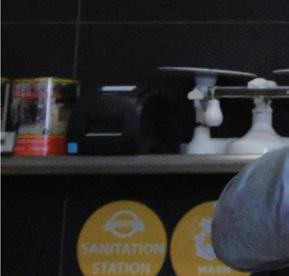



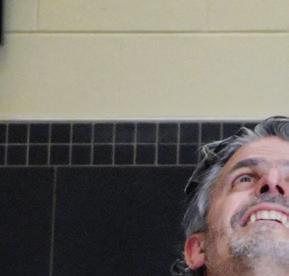





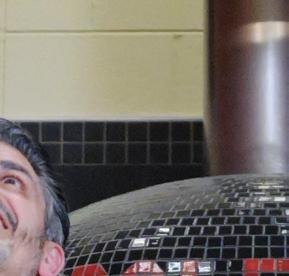
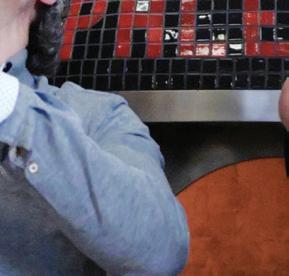



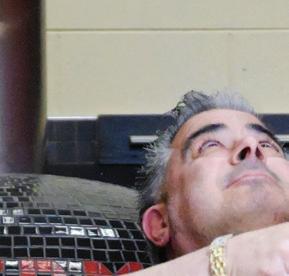









WB BOTTLE SUPPLY was founded during the Great Depression when Wilfred Wing Sr. and his partner, Ed Berger, would spend their days collecting bottles at the local dump, then cleaning and re-selling them. In 1932, WB Bottle’s operations officially began in a store outlet and warehouse on the south side of Milwaukee.
A few months later, Wilfred Wing Sr. bought Berger’s share of the business for $50, and by 1937 the business had moved to a 24,000-square-foot warehouse and office building.
Nine years later, Wilfred Wing Jr. and his brother, Jerry, took over the family business. WB Bottle began its in-house silk-screen decoration in 1954, attained their first distributorship two years later and moved operations to an 80,000-square-foot building in 1964.
The 3rd generation, James Wing (Wilfred Jr.’s son) joined WB Bottle after returning home from military
service in 1972. He began as a blow molder, then joining the office staff in 1973, where he worked in all aspects of the business. He was appointed CEO and president in 1987.
Today, WB Bottle is currently in its 4th generation of leadership with Kristie Wing-Smith as CEO and President, and Kelly Meloy as Vice President. Kristie’s two daughters, Kaitlyn Smith and Kari Pulizos, are currently working in sales and learning the administrative side of the business while Gavin Meloy, Kelly’s son, has recently joined the team and is working in logistics.
WB Bottle prides itself on its culture of trust, integrity, and respect that has been ingrained in each generation. Throughout the company’s history, WB Bottle has been blessed to have many employees that have given 30, 35, and even 40 years of dedication.
When those employees retire, knowledge and experience is lost. To overcome this challenge, WB has blended the recruitment of new talent with the investment of upskilling current employees.
This type of implementation will ensure that WB Bottle continues to build a staff to take it into future generations.

BY ANDREW WEILAND, staff writer
WITH 45 STORES in Wisconsin, Illinois, Iowa and Michigan, Janesville-based Blain’s Farm & Fleet is an iconic Wisconsin retailer. Founded in 1955 by brothers William Claude Blain and Norman Albert “Bert” Blain, the business, which has 5,500 employees, has thrived in a highly competitive and challenging retail environment.
Under the leadership of Jane Blain Gilbertson, Bert Blain’s daughter, the business has grown and has transitioned through several phases of the family business lifecycle. She will participate in a keynote conversation and share her company’s story at the annual BizTimes Media Family & Closely Held Business Summit on Wednesday, June 4, at the Brookfield Conference Center.
Blain Gilbertson recalls as a child going with her dad to visit stores during the weekends to check out how things were going.
“For my dad it was always about the people,” she said. “He always loved to tell stories about
awesome things associates had done for a customer, they’d gone the extra mile, or how they’d given him a great idea. He loved to talk about the people. We still say that we treat our associates like family because that’s how they were treated back in the day.”
As a teenager, Blain Gilbertson worked at the company’s Janesville store as a cashier and in other departments. She then went to Miami University in Ohio. While pursuing a business degree, she decided she wanted to major in retail.
“I’m sure my parents laughed, ‘Yeah, there’s a good idea, this just occurred to you?’ But I had to prove it to myself. Do my own thing,” she said. “And that was really when I realized I loved what they did.”
But after graduation, Blain Gilbertson did not want to go into the family business, which she says was very disappointing to her father.
Instead, Blain Gilbertson got a job with Macy’s
Midwest division in Kansas City.
“I was enamored with the idea of working for a big department store,” she said. “I went out there to learn to be a buyer. But what I ended up learning was how not to do business. To see how poorly they treated their vendors, how poorly they treat-

ed their associates. It was all about ‘what have you done for me lately?’ It just all felt so wrong compared to the environment I had seen (growing up).”
After her mom died unexpectedly at the age of 54, there was some family pressure for Blain Gilbertson to come home to the family business. She wasn’t quite ready to do so, but about five to six months later in 1985, she did.
Blain Gilbertson became a buyer of children’s apparel and giftware for Farm & Fleet. She later took on oversight of other buyers, oversight of the marketing department and eventually operations for the organization.
After Claude died in 1988 and Bert died in 1993, the business was split 50-50 between their two families. In 1998, Claude’s family members wanted out.
“They wanted to either sell the business or take it public,” Blain Gilbertson said. “My brother (Robert Blain) and I said we were not interested in either of those things. But, we said if we can come to an agreement on price, we’ll buy you out. So that’s what happened.”
“Some (of Claude’s family members) were ready to retire. At that time Walmarts were coming into a lot of our markets, and there was a lot more competition. The younger generation (of
Claude’s family) for the most part was worried we couldn’t compete, and (she and Robert) felt that we could,” Blain Gilbertson said. “Everybody got what they wanted. They were bought out and we were able to continue to run the business the way that we wanted to and continue to grow. It was a lot of fun back then. It was just the two of us making decisions, and we could just run, we thought a lot alike about the business.”
Robert was president of the business and Blain Gilbertson was executive vice president. They split responsibilities with him handling finance and human resources and she handled merchandise and operations.
Then 12 years ago they added an independent board, which challenged the company’s leaders in a number of areas and helped the business become more professionally managed.
“It was the single best thing I ever did,” Blain Gilbertson said.
A year later Robert was ready to retire and then Blain Gilbertson bought him out, becoming the sole owner of the family business.
Blain Gilbertson then ran the company for the next 10 years as CEO.
Last year she stepped down from that role, while remaining involved and maintaining her
25_003426_Milwaukee_Biz_Times_JUN_2


sole ownership.
For four years, Blain Gilbertson had groomed the company’s chief of stores, Mark Hasting, to become the first non-family member to lead the company as CEO. The leadership transition was completed in September.
“Culturally he was absolutely the right fit, which is the most important thing,” she said.
Blaine Gilbertson is now executive chairman of the company’s board, primarily providing support to Hasting.
“I’m available to him anytime he needs,” she said.
Blaine Gilbertson’s two daughters are now involved in the business. Nicole Gilbertson is a project management specialist and Sarah Gilbertson was a customer relationship marketing specialist and is now becoming a buyer for the company.
“It’s fabulous to see them in the business,” Blaine Gilbertson said. “It’s important the next generation gets the right exposure and we’re doing what we need to do to develop them. The question is always, ‘Are they going to be next (to lead the business)?’ Who knows? I don’t want to put that pressure on them. They’ll learn their way, and they’ll decide what they want. For now, they are all in.” ■



BY ASHLEY SMART, staff writer
PRESIDENT DONALD TRUMP says his trade policies and tariff strategies are intended to bring more manufacturing activity and jobs back to the United States. But for now, many Wisconsin companies are trying to navigate the uncertain economic landscape caused by Trump’s widespread tariffs.
In April, Trump announced a minimum 10% tariff on several countries. Certain countries faced much larger tariffs including China (34%), Vietnam (46%), Thailand (36%) Cambodia (49%), Bangladesh (37%) and Pakistan (29%).
A few days after the initial announcement, a 90-day pause on reciprocal tariffs, excluding goods from China, was announced.
The president’s sweeping tariff announcement also led to retaliatory action from China, which said it planned to match the 34% tariffs imposed by Trump. Trump then enacted a 145% tariff on Chinese goods. In mid-May, the U.S. and China announced a 90-day pause on reciprocal tariffs.
The back and forth of Trump’s tariff moves this year has caused several local companies to completely re-work how they handle pricing.
Cudahy-based CR Industries is currently quoting on a spot basis and passing on any rising costs to customers. The company won’t speculate on material pricing because if they get things wrong, it will have a significant impact on the business.
“Even if there is an announcement tomorrow that the tariffs are gone, I don’t foresee market pricing changing,” said Rich Ballenger, co-owner of CR Industries.
Milwaukee-based manufacturer Stratus Industries is another company changing its pricing and quotation process.
Stratus is reworking its quoting process and giving customers less time to commit to orders. What used to be a “reasonable window” to consider quotes has quickly dwindled down to as little as 24 hours.
“That’s making it really difficult to circle back to customers and make final pricing decisions,” said Tom Daugherty, CEO of Stratus Industries. “We have less than a day sometimes to get in touch with everyone to make the call on purchasing materials at that price. And rarely does the price go down the next day.”
Oconomowoc-based Sentry Equipment has seen its business in China essentially halt due to uncertainty regarding when, and if, a final trade deal will be reached.
About a quarter of the company’s business is being affected by tariffs, according to Rich Gaffney, vice president of commercial operations at Sentry Equipment.
“Commerce for us in China is going to be nonexistent for the foreseeable future unless something major changes there,” said Gaffney.
The cost of doing business with the tariffs on both imported and exported goods is simply too high, he explained.
“Something that would have cost $100 two months ago now costs somewhere around $250,” Gaffney said. “The whole market is going to have to recorrect itself for the price expectation, and nobody has found that home yet.”
Tariffs are also hitting Wisconsin breweries hard. Ryan Bandy, chief business officer at Indeed Brewing, said he recently received a 65% increase for a purchase order related to new tap handles. The brewery is in the middle of a project that involves upgrading new packaging equipment.
“For two of our parts, wait times just doubled and prices are up 30%,” said Bandy. “We already budgeted for this project and we’re halfway through. We’re wondering if we can finish it.”
It’s difficult to make any business plans now due to the constant “chaos,” Bandy explained. While brewery owners are crafty, he said they need more than a 90-day window of clarity to make decisions.
Several of Wisconsin’s largest manufacturers have already introduced price increases to recoup the money they estimate will be lost this year due to tariffs.
Milwaukee-based A.O. Smith increased prices by between 6% and 9% on most water heater products.
A.O. Smith has also congregated cross-functional tariff response teams to identify tariff and supply chain-related risks to the business.
At Harley-Davidson, company officials have said tariffs will cost the company between $30 million and $55 million throughout the remainder of 2025.
The company expects 145% tariffs on China to return following the end of the current 90day pause.
Already, Harley-Davidson has taken a $9 million hit from tariffs during the first quarter of the year, the company says.
Harley-Davison is making some supply chain adjustments where possible and slowing down shipments of motorcycles. The manufacturer is also looking at pricing but has not made any changes yet due to “the current recessionary environment” for leisure products.
“It’s difficult to predict what policies may impact customers over the course of a year and how consumer confidence will affect discretionary purchase,” said Jochen Zeitz, CEO of HarleyDavidson.
Town of Genesee-based Generac reported last month that tariffs could cost the company $125 million in the second half of the year.
Generac expects the impact of tariffs to be fully offset by price increases of between 7% and 8%, along with additional supply chain initiatives.
“There’s whole industries that aren’t here in the U.S.,” said Aaron Jagdfeld, CEO of Generac during the company’s latest earnings call. “We can’t buy everything here in the U.S. Maybe over time that (network) could be developed, but definitely not in 30 days.” ■
The 19th BizExpo, held on May 13th at the Brookfield Conference Center was a great success! Area professionals enhanced relationships, discovered new leads, closed deals, and garnered exposure for their businesses. Furthermore, creativity was sparked and insights were shared at the Elevate Your Leadership keynote session and 11 strategy seminars. To learn more, see pictures and watch videos from the seminars visit biztimes.com/bizexpo.
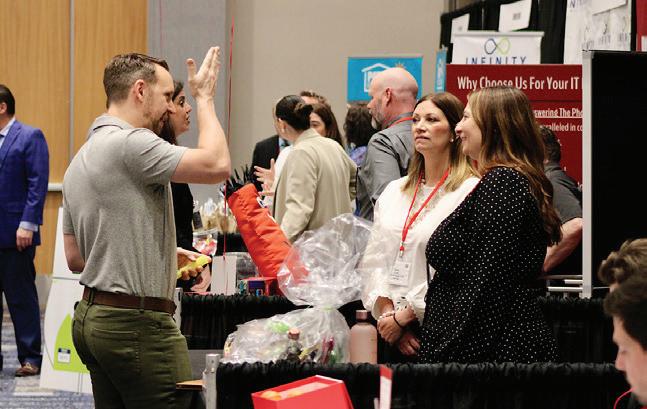












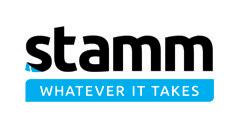
BY HUNTER TURPIN, staff writer
AFTER YEARS OF RISING and unpredictable construction costs, Milwaukee-area architects are confronting a new design reality – one in which creativity is as much about budgets as aesthetics. To bring projects to completion, firms are asking and answering new questions: Do you reduce the scope? Do you defer spaces or set up for phase additions? How do we use simple shapes? How can we panelize certain elements? Just to name a few.
Though construction cost increases have begun to stabilize in recent months, the effects of sustained inflation are still reverberating across the development world. According to the U.S. Bureau of Labor Statistics, construction input prices rose nearly 40% between 2020 and 2023, with more modest increases in the years since then. Implemented and contemplated tariffs could add
a new element to rising construction cost trends.
Locally, architectural firms are finding creative ways to adapt.
For Peter Balistrieri, principal at the Milwaukee office of Minneapolis-based HGA, clarity at the outset of a project has become paramount.
“Every project is for a reason,” Balistrieri said. “Being clear about what the real purpose of the project is is critical for us to help inform all of the other things that we’re going to talk about, because now you also know that you have to make hard decisions because of higher costs, what you’re giving up.”
Balistrieri pointed out that building systems and complex infrastructure projects tend to carry the biggest cost burdens.
Joe Galbraith, partner at Wauwatosa-based
Galbraith Carnahan Architects, sees mechanical, electrical and plumbing costs across projects capturing a greater share of the budget than in the past.
“Unfortunately, those are required systems, so there’s very few cost-cutting measures that can be done there,” Galbraith said.
Both also agreed that global supply chains are still a wild card.
“I do suspect that there are building types where a predominance of building materials come from China, for example multifamily often has countertops and cabinets, other furnishings and fixtures that come from overseas, that have and are probably going to continue to see impacts,” Balistrieri said.
With skilled labor in short supply, particularly masons, designs are also being shaped by workforce realities.
“There are fewer masons, which means buildings are having less masonry than before,” Galbraith added. “This sometimes comes into conflict with what a municipality may want.”
ADAPTING TO THE NEW NORMAL “Death, taxes, and construction costs never going down,” quipped Chad Griswold, partner at







Milwaukee-based RINKA.
In response, Griswold said teams are exploring more options for things like location, density and materials to make projects pencil out.
“We’re looking at more optionality than we used to on a project,” he said.
For residential projects in particular, simpler formats like garden-style apartments are seen as an attractive design style. With fewer trades involved and less complexity overall, they offer a lower cost per unit to build, according to Griswold.
Across the industry, architects said they’re working more closely with construction partners earlier in the process to allow for better budget planning and more accurate cost estimation.
Balancing design intent with budget constraints remains a challenge.
“The dreaded word in the industry is value engineering,” Griswold said. “You have a project and everybody likes it, likes the quality, likes the look of it. Then, they get the cost and then you go through all these exercises... and sometimes you don’t end up with the same product or design in the end.”
To avoid that pitfall, RINKA has shifted to an “additive” model. Instead of starting with a fully developed design and cutting back, the firm builds from a baseline and adds features strategically. It’s

a method that Griswold said helps protect both vision and value.
While budget conversations have always been part of the process, they’ve become more intense lately.
“In the past, it was maybe a little bit easier to understand what that pro forma cost is, design something, and you’re going to be within shooting distance of getting it done,” Griswold said. “These days, it’s gotten harder to achieve.”

At CG Schmidt, we build more than just buildings—we create spaces for growth, innovation, and connection. As your trusted partner, we’re committed to building a better tomorrow, today.







Still, Griswold believes these constraints can fuel innovation.
“The more constraints that are put on a project, the more creative we have to be to achieve a design that’s not only functional, but beautiful and something that everybody is proud to have in their community,” Griswold said. “Sometimes it actually produces better work.” ■



BizTimes Milwaukee is proud to present its showcase of Notable Entrepreneurs, recognizing the founders and owners of local businesses who keep southeastern Wisconsin innovating and growing. The individuals on the following pages were nominated by their peers and highlight the talent in the region.
METHODOLOGY: The honorees did not pay to be included. Their profiles were drawn from nomination materials. This list features only individuals for whom nominations were submitted and accepted after a review by our editorial team. To qualify for the list, nominees must have founded or been involved in a startup organization that launched in the southeastern Wisconsin area and participate in a professional organization and/or civic or community service initiatives, mentorship or pro bono work.

NITIN RANJAN CEO GOLGIX INC.
Nitin Ranjan, CEO of Milwaukee-based artificial intelligence startup Golgix, reflects a rare blend of technical mastery, visionary leadership and deep human empathy, according to investor Dana Guthrie, managing partner of Gateway Capital.
After beginning his career as an application engineer, Ranjan in 2021 founded Golgix, which focuses on using AI within the manufacturing sector to help eliminate unplanned downtime and production interruptions due to unforeseen process and equipment failures. The company has so far secured $1.8 million in funding and its “human-centric AI suite cuts unplanned downtime in mid-market plants by 59%,” said Guthrie.
“(Ranjan’s) visionary approach bridges critical gaps between advanced technology and human expertise, empowering manufacturing leaders to predict failures, prioritize issues, and make confident decisions,” she said.
“Under Nitin’s leadership, Golgix has achieved remarkable results for mid-market manufacturers in plastics, chemicals, paper, and food & beverage industries – sectors vital to Wisconsin’s economic foundation,” said Sanjay Mohan, CEO of 4306 Digital Edge. “His solutions have delivered transformative metrics, including a 4% boost yield while optimizing yield and facilitating knowledge transfer between experienced operators and new talent.”
Through her company Milwaukee-based Pryme Solutions, CEO and founder LaShawndra Vernon empowers organizations to navigate challenges and achieve positive change, according to Laurence Jenkins, an entrepreneur with CLLCTVE.
“Her crisis analysis and mitigation work strengthens community resilience. She cultivates the creative economy through creative cooperative systems, supporting artists’ financial stability. Her work in public health initiatives addresses racial disparities in birth outcomes and environmental justice,” Jenkins said.
Pryme Solutions clients include Creative States Coalition, BCDI-Wisconsin, Riverworks, Wisconsin Voices and the Greater Milwaukee Foundation. Previously, she led Artists Working in Education Inc. and the Walnut Way Conservation Corp.
“Deeply committed to her community, LaShawndra chairs the Bronzeville Advisory Committee and serves on Milwaukee County’s CAMPAC board and the Wisconsin Arts Board. She hosted the UN Women public input hearing that led to the Women Peace & Security Act and founded the Human Trafficking Task Force of Greater Milwaukee,” Jenkins said.
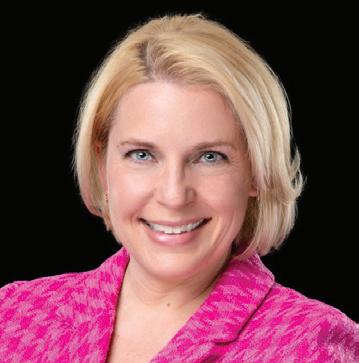
MARLA POYTINGER OWNER, CO-FOUNDER AND CEO BARS & RECREATION INC.
Since Marla Poytinger cofounded Milwaukee-based Bars & Recreation Inc. in 2012, she has helped grow it from a 2,600-squarefoot paint-and-sip studio into a multi-venue entertainment brand.
“Marla Poytinger has made a lasting impact on the hospitality and entertainment industry through visionary leadership, entrepreneurial grit and a deep commitment to community,” said Erin Hochevar, vice president of Bars & Rec. “Her ability to create immersive, experience-driven concepts has made Bars & Recreation a standout in the industry.”
Bars & Rec operates AXE MKE, Nine Below, Amped, Game Show MKE, NorthSouth Club and The New Fashioned, all located in Milwaukee. Its newest concept, Slingshot Bar, will open in West Allis this fall. Poytinger leads Bars & Rec’s team of nearly 100 employees alongside her husband, co-founder and chief innovation officer David Poytinger.
Poytinger is a member of Tempo Milwaukee, serves on the boards of both Danceworks Inc. and the Deer District Business Improvement District, is a committee member and fundraiser for Arts @ Large and the WRA’s Women in Hospitality Conference. She’s also a frequent speaker at local business development conferences and workshops.

PRESIDENT, PRODUCER AND DIRECTOR MINDPOOL
LIVE
Josh Adams founded video production company Mindpool Live in Milwaukee in 1999 and has kept it in the metro area throughout its continued growth.
Now based in Saint Francis, Mindpool Live provides its video production services and equipment, including planning, shooting, direction, creative content and cutting-edge video technology, to some of the largest artists, festivals and companies in the world, according to Paul Leckie, principal consultant at Hohenfels Marketing.
Adams has worked with the band Foo Fighters for the past 15 years and has toured the world with them. In addition, Adams is also known for his work on “Henry Aaron’s Summer Up North” (2005), “Violent Femmes - I Am Nothing” (2019), and “Streaming Outta Fenway” featuring the Dropkick Murphys and Bruce Springsteen (2020). His professional awards include two Emmys and a Parnelli Award for Video Director of the Year in 2019.
Adams and his wife, Sandi Anderson Adams, are active supporters of local arts, including 88.9 Radio Milwaukee and the Milwaukee Film Festival.
“Josh is a big supporter of the community,” said Kevin Gillson, director of production services at Mindpool. “He runs a great family-style business and treats us like family and close friends.”
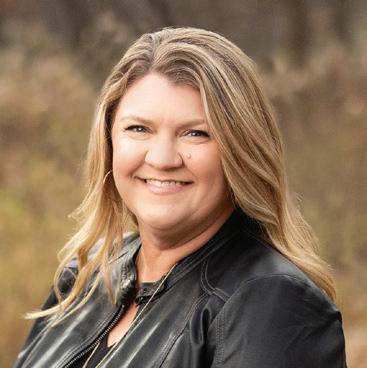
KAELYN CERVERO MANAGING PARTNER AND PRINCIPAL NOBLE CATERING & EVENTS | 41FORK HOSPITALITY
In two years, Kaelyn Cervero launched and grew Milwaukeebased Noble Catering & Events and its umbrella company 41Fork Hospitality into a multimillion-dollar portfolio of concepts, according to Dell Mercado, director of people operations at 41Fork Hospitality.
The 41Fork portfolio includes Noble’s exclusive event oversight and catering for the Milwaukee Public Museum and the Villa Terrace Museum; the RiverCenter Market food court and Vault bar at the Associated Bank River Center; and a new beverage catering company, NEAT.
Cervero is currently overseeing the development of Brixton’s Turn, a new event venue and future headquarters for Noble Catering, to be housed in a restored 1917 carriage house in the Harbor District.
Kaelyn serves on the Wisconsin Restaurant Association board, contributes to the National Committee for the National Association for Catering and Events, and is a member of TEMPO Milwaukee and Waukesha. She supports several local chambers of commerce and maintains partnerships with community organizations and nonprofits, Mercado said.
“As the only certified professional in catering and events trainer in Wisconsin, Kaelyn shapes the next generation of event professionals,” Mercado added.

Since launching Milwaukeebased digital marketing firm Keystone Click in 2008, founder and owner Lori Highby has built a multidisciplinary team that offers research driven web development and AI-enabled marketing strategies.
“Lori Highby is a 20 year digital marketing professional who has turned Milwaukee into a proving ground for B2B innovation and has helped scores of southern Wisconsin manufacturers and professional service firms expand sales well beyond the region,” said Nicole Morton, director of marketing operations for Keystone Click. “Highby’s impact reverberates through the talent pipeline she cultivates.”
Highby helped write Milwaukee Area Technical College’s social media marketing curriculum, taught B2B sales and marketing at UW Milwaukee’s Lubar School of Business and now leads Agency Management Institute boot camps that upskill agency professionals nationwide, seeding the next generation of innovators with cutting edge skills, according to Morton.
Highby has two podcasts, “Social Capital” and “a BROADcast for Manufacturers,” that spotlight Wisconsin voices and offer growth tactics to a global audience. Her keynote presentations at conferences aim to demystify AI and digital strategy for entrepreneurs at every stage, according to Morton.

MILWAUKEE MAKERS MARKET
Ryan Laessig, owner of Milwaukee Makers Market, has helped more than 1,000 local small businesses, makers and artists achieve their goals and dreams of getting their business out to the public, according to Linqing Wang, artist and owner of Linny’s Artsy Fingers.
Laessig hosts more than 10 Milwaukee Makers Markets each year and was recognized with the “Best of Milwaukee” Award for Local Entrepreneur, Local Arts & Craft Fair/Maker Market, and runner-up for Milwaukeean of the Year by the Shepherd Express.
Laessig also has created public artwork in the City of Milwaukee and is now the executive director of the East Side Business Improvement District.
“He continues to support the arts by welcoming local artists to create new murals in Milwaukee’s Black Cat Alley public space,” Wang said. “He also established a brick-and-mortar location, the Milwaukee Makers Marketplace, in Bay View, giving local makers the opportunity to have a physical presence where supporters and visitors can purchase from local artists.”

A military veteran and former human resource and safety manager, Cari Badge built her mobile drug and alcohol testing company, Burlington-based J C On-Site Testing, to serve attorneys, families, student athletes and employers across Wisconsin. Its services include on-site hair follicle, urine, oral fluid, breath alcohol and DNA testing.
After losing her husband and three young children in a 2018 kayak accident, Badger found purpose through sobriety and service, according to a colleague, who said, “She turned unimaginable pain into an unshakable purpose. She’s not just building a business – she’s saving lives.”
J C On-Site Testing also acts as a consultant, helping organizations develop and implement drug-free workplace policies, training supervisors to recognize impairment, and managing DOT consortium programs.
Badger also mentors individuals in recovery and speaks to at-risk youth about the consequences of substance abuse.
“Her story is heartbreaking, but her strength is inspiring,” a community partner said. “She’s the kind of leader who lifts everyone around her.”
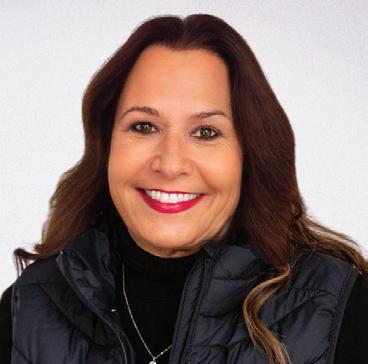
CEO
Anne Zizzo began Milwaukeebased Zizzo Group Engagement Marketing in 1995 in her basement. Today, the company has its headquarters in a 12,200-square-foot Walker’s Point building that Zizzo purchased and then invested $3.5 million to revitalize.
Soon after relocating her company to the Walker’s Point building, Zizzo recruited Skilos, A Family Pet Store to open its second location in the ground-floor retail space, bringing an amenity to the neighborhood, said Lisa Ehlke, vice president of public relations at Zizzo Group.
Other recent accomplishments include acquiring competing marketing firm Celtic Inc., marking the seventh acquisition in ZG’s history, and creating the brand, website and stakeholder communications for the 2024 Republican National Convention’s local host committee.
Zizzo chairs the Froedtert Hospital board, serves on the Boys & Girls Clubs of Greater Milwaukee board, is a trustee emeritus and participated in Marquette University’s presidential search and is a founding member of the Be the Difference NIL collective.
Zizzo is a founding member-level investor in the Walker’s Point Neighborhood Association.
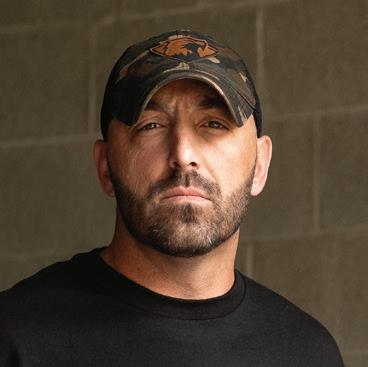
OWNER AND FOUNDER
CAMO CREW RESPONSIBLE JUNK REMOVAL | GREEN UP SOLUTIONS
Andy Weins is a veteran and the owner of Butler-based Camo Crew Responsible Junk Removal and the founder of Green Up Solutions, an environmental consulting firm. He also hosts the Trash Talk Business Podcast, where he shares insights and conversations from the waste removal industry.
“Andy has built a career rooted in service, leadership and measurable impact. With more than 20 years in the military, including deployments during Operation Iraqi Freedom and Operation Enduring Freedom, he continues to serve as a U.S. Army Reserve career counselor while leading multiple ventures focused on sustainability, veteran advocacy and entrepreneurship,” said Emmy Thiel, business administrator for Camo Crew.
“Within his organizations, Andy leads with intentionality and a relentless commitment to growth,” said Thiel. “He fosters a culture of accountability, supports individual development, and consistently pushes both himself and his team toward excellence. His transparent and empowering leadership style encourages team members to lead, learn and contribute meaningfully.”
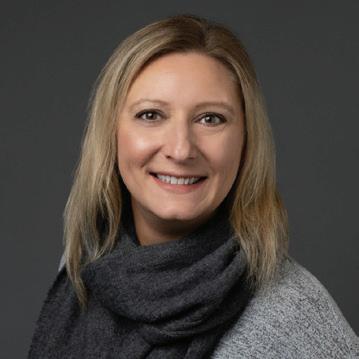
MICHELE TONKOVITZ
OWNER AND CEO GREEN ONION CREATIVE
Michele Tonkovitz, founder and CEO of Milwaukee-based Green Onion Creative, exemplifies entrepreneurial excellence in Milwaukee’s marketing landscape, according to Milena Dlugi, online business manager at Milena Elite LLC.
Launching Green Onion Creative in 2013, Tonkovitz has grown the company from a solo endeavor into an agency serving businessto-business, business-to-consumer and governmental clients across the country, specializing in copywriting, design, social media, public relations and vendor relations.
“Michele’s leadership style is characterized by empowerment and collaboration. She believes everyone deserves the opportunity to have good marketing to help grow their brand and awareness,” Dlugi said.
Tonkovitz also has served as a contract copywriter for Roundy’s Supermarkets Inc. for more than 11 years, writing weekly promotional emails.
“Beyond her business achievements, Michele is committed to community engagement,” Dlugi said. “She serves as the president of the Milwaukee Chapter of the American Marketing Association and was vice president of the chapter’s Expert Speaker Series from 2016 to 2020.”
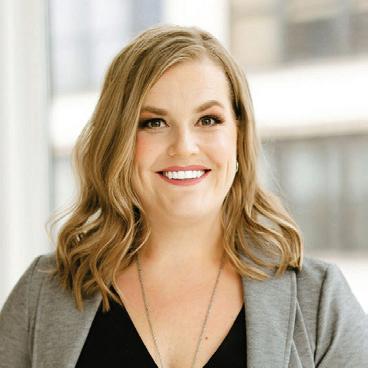
Lisa Proeber is the founder and owner of The Middle Six, a Milwaukee-based sales and marketing firm, providing companies of all sizes with training, consulting and services focused on driving sales.
Drawing on nearly 20 years of experience in sales and business development, Proeber launched the firm in 2022. Since then, The Middle Six has achieved more than 700% year-over-year growth, becoming a resource for companies looking to align people, process and technology to drive revenue, according to Hayley Novak, CMO of The Middle Six.
“In addition to her entrepreneurial success, Lisa is a dedicated civic leader. She serves as president of the Downtown Neighbors Association, representing residents across Milwaukee’s central neighborhoods,” Novak said. “In this role, she advocates for urban population growth, improved quality of life and a stronger downtown business ecosystem. Her impact is rooted in her passion for Milwaukee, her drive to build meaningful partnerships and her commitment to creating lasting change in both business and community spaces.”
Proeber is also a member of the Metropolitan Milwaukee Association of Commerce and the Milwaukee Athletic Club.
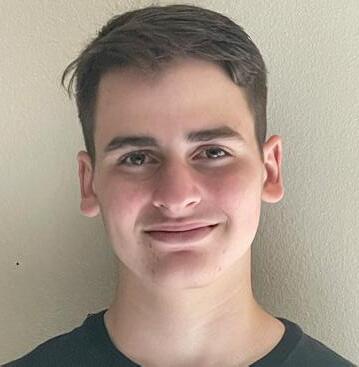
At 13 years old, Ilan Walny, founder of The Walny Project, left home to go to school and play hockey on the East Coast.
At 16 years old, Walny was dissatisfied with the clothing options and price points available to his peers at school. So, without any formal training, he founded The Walny Project, a start-up online clothing boutique selling products designed in the U.S. “He put together a business plan, designed a website, found suppliers that aligned with his ethical standards, designed a company logo and all of the clothing designs and executed a marketing plan,” said his father, Eido Walny, managing partner of Walny Legal Group LLC. “Without a high school degree, let alone any formal business education, Ilan embarked on an entrepreneurial path for himself. Now as a 19-year-old, through successes and lessons learned through failures, Ilan has made The Walny Project into a viable business over the last year.”
Ilan Walny has ongoing supplier contracts with entities including the National Association of Estate Planners and Councils and the Estate Law Specialist Board LLC.
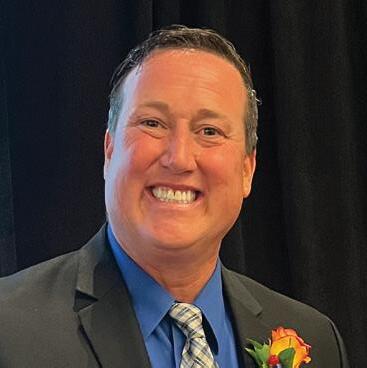
Former Oak Creek police officer Sean Mars leads Franklinbased CharityEZ, a platform designed to support nonprofit leaders through collaborative think tanks, software and hands-on coaching – all offered at no cost.
Mars got his start as an entrepreneur when he launched Competitive Edge Software in 1995 to streamline incident reporting and safety management for law enforcement. The company, later known as Report Exec, merged with Information Technologies Inc. in 2017 to create Omnigo Software.
“Few entrepreneurs embody both innovation and impact as fully as Sean Mars,” said Eric DeGroot, director of the Wispact Foundation. “His entrepreneurial drive has since evolved into a broader mission.”
After exiting Competive Edge, Mars founded the Mars Family Foundation and launched CharityEZ in 2022.
Beyond business, Mars volunteers weekly with young cancer patients at Children’s Wisconsin and supports pediatric care through technology and sponsorship.
“To Sean, letting kids be kids – especially when they’re going through challenging times – is his most important role,” said Meg Brzyski, president of Children’s Wisconsin Foundation and chief development officer.

Mort Sayyed, CEO of Milwaukee-based Minlopro Partners, is an immigrant from Pakistan who achieved success through perseverance, according to business partner Mitul Bhakta.
Minlopro Partners is a consulting firm that specializes in Salesforce implementation, serving companies mostly in the health care industry. Since its founding in 2022, the company has grown into a multi-national, multimillion-dollar firm without outside funding, according to Bhakta.
Prior to founding Minlopro Partners, Sayyed gained Salesforce experience at numerous organizations including IBM, PolSource, Simplus, Canpango, Dover Corp., Appiro, Allium, Rehrig Pacific Co., Funjet Vacations and through his work as an independent consultant.
Beyond work, Sayyed supports his alma mater, UW-Milwaukee, where he graduated from the Lubar College of Business, by offering internships and post-graduation employment. He also spends some of his free time coaching Strike FC soccer. Prior to Strike FC, he coached for the Milwaukee Kickers Soccer Club from 2016 to 2019.

As founder of Brookfield-based Podcast Town and host of the “Journey to Mastery” podcast, Elzie Flenard III has created platforms designed to elevate underrepresented entrepreneurs while providing practical guidance for business growth.
“Elzie’s career trajectory exemplifies perseverance and vision. He started as a janitor, worked as an electronics technician, and then developed a unique perspective that informed his approach to business development,” said Susie Moon, chief connection officer, Susie Moon Consulting.
Flenard’s 2022 book “Flame Starter: The Art of Self-Mastery” has become “a valuable resource for entrepreneurs seeking to ignite their potential, while his podcast has featured conversations with some of the brightest minds in business, extending his impact globally,” said Moon.
Flenard holds regular workshops for aspiring entrepreneurs in underserved neighborhoods, providing both technical skills and mindset coaching. He also works pro bono with first-generation business owners, providing guidance on branding, messaging and scaling strategies, Moon added.
Flenard has been recognized with the Emerging Voice Award for his contributions to digital media and entrepreneurship education.

FOUNDER AND CEO PUREVANT LIVING
Stephanie Krubsack is the founder and CEO of Milwaukeebased Purevant Living, a consulting, marketing and media company that works to help companies increase profits and leave a positive impact on person and planet.
Krubsack is also the creator and editor-in-chief of Person & Planet Magazine and host of the Person & Planet Podcast.
“She also served on the board of the Wisconsin Sustainable Business Council for three years, founded Women Who Kayak leading paddle trash cleanups across the state, and is a member of TEMPO Milwaukee’s Emerging Women Leaders community,” said Elizabeth Pancratz, head of marketing and office operations - commercial division for Founders 3 Real Estate Services.
Krubsack recently curated and hosted a Forbes-featured, soldout event at Climate Week NYC 2024, wrote a featured article in The New Business Review, and spoke at Lambeau Field to a crowd of more than 600 for the New North Summit in 2024 as part of the Green Bay Packers Mentor-Protégé Program.
As an advocate for environmental and health education, Krubsack also wrote a children’s book and paired cookbook called, “The Pale Pickle.”
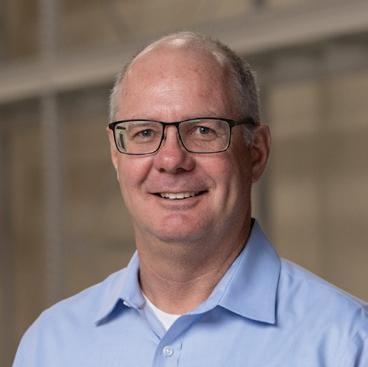
MIKE MOORE PRESIDENT MOORE CONSTRUCTION SERVICES
After a career in construction that had spanned nearly three decades, Mike Moore founded Menomonee Falls-based Moore Construction Services in 2007.
Moore Construction Services is a construction manager, designbuilder and general contractor serving commercial, institutional and multifamily markets in Wisconsin.
“His business acumen and commitment to exceptional project delivery has helped fuel the company’s growth over the past 15 years,” said Bridget Fritz, director of business development at Moore Construction.
Clients credit Moore’s strong project management skills and abilities, his no-nonsense approach to customer service, and his ability to assemble and organize highly efficient teams, as his primary keys to success, Fritz added.
Described as a servant leader, Moore is involved with several organizations including the Menomonee Falls Chamber of Commerce, Froedtert Menomonee Falls Hospital Foundation, UWStout, Beyond Vision and Catholic Memorial High School.
“In addition, he strives to support his community, his partners and his own customers in their missions with his time and resources and encourages his employees, friends and families to do the same,” said Fritz.
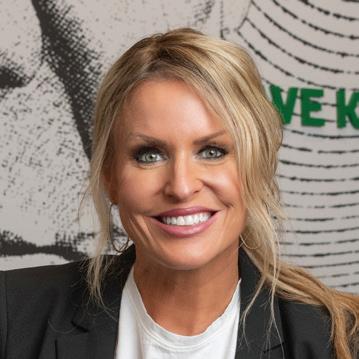
KELLY BROWN CEO AMPERSAND INC.
Kelly Brown, CEO of Waukeshabased financial services firm Ampersand Inc., has worked in the banking industry for roughly three decades and is a recognized financial leader, public speaker and Young Presidents’ Organization executive.
Brown founded Pewaukee-based American Deposit Management Co. in 2009, growing it to more than $6 billion in assets under management working with more than 500 financial institutions nationwide. She led the company as chairman and CEO until 2022 and then founded Ampersand Inc. in 2023. She is also senior advisor, past partner at Patriot Financial Partners.
“As a leader, Kelly believes in the value of an empowered team to produce desired results, having mentored numerous highperforming staff to excel in both their careers and personal lives,” said Nicole Balistreri, director of marketing and communications at Ampersand Inc.
Brown‘s areas of expertise include national, regional and small community banking; private equity and bank mergers and acquisitions; bank profitability and strategic fee income programs; management of deposit portfolios exceeding $1 billion; and regulatory policy.
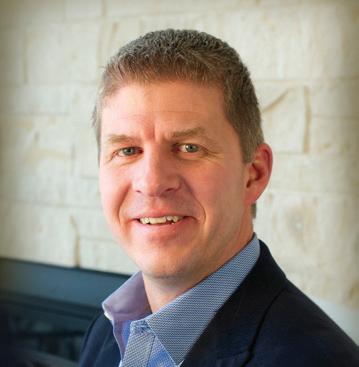
JOHN STOKER OWNER AND PRESIDENT THE VICTORY COMPANIES
John Stoker is the founder, owner and president of The Victory Companies, based in Germantown and comprised of Allan Builders LLC, Victory Renovations LLC, Victory Homes Madison LLC, VCI Realty LLC and Victory Homes of Wisconsin Inc.
Stoker has also been a longtime member of the Metropolitan Builders Association, serving on numerous boards and committees and participating in the Parade of Homes for more than 20 years, often exhibiting more than one home at a time.
He acted as MBA president in 2017 and was recognized as MBA’s builder of the year in 2018.
“John has demonstrated unwavering dedication to the building industry at the state and national levels and attends key meetings throughout the year for both the Wisconsin Builders Association and the National Association of Home Builders,” said Jo Anne Mudry, partner at Detour Marketing.
Stoker’s achievements have been recognized by the WBA’s 2024 Badger Craftsman Award for Best New Home $1.25 million-$2.25 million, 2022 Badger Craftsman Award for Best New Home Over $1.2 million, the 2022 WBA Rising Star Award, and most recently, the 2024 Builder of the Year.

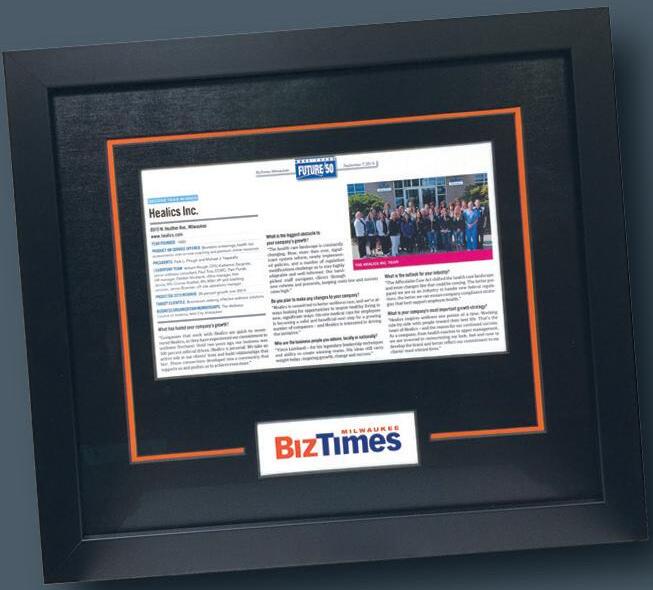







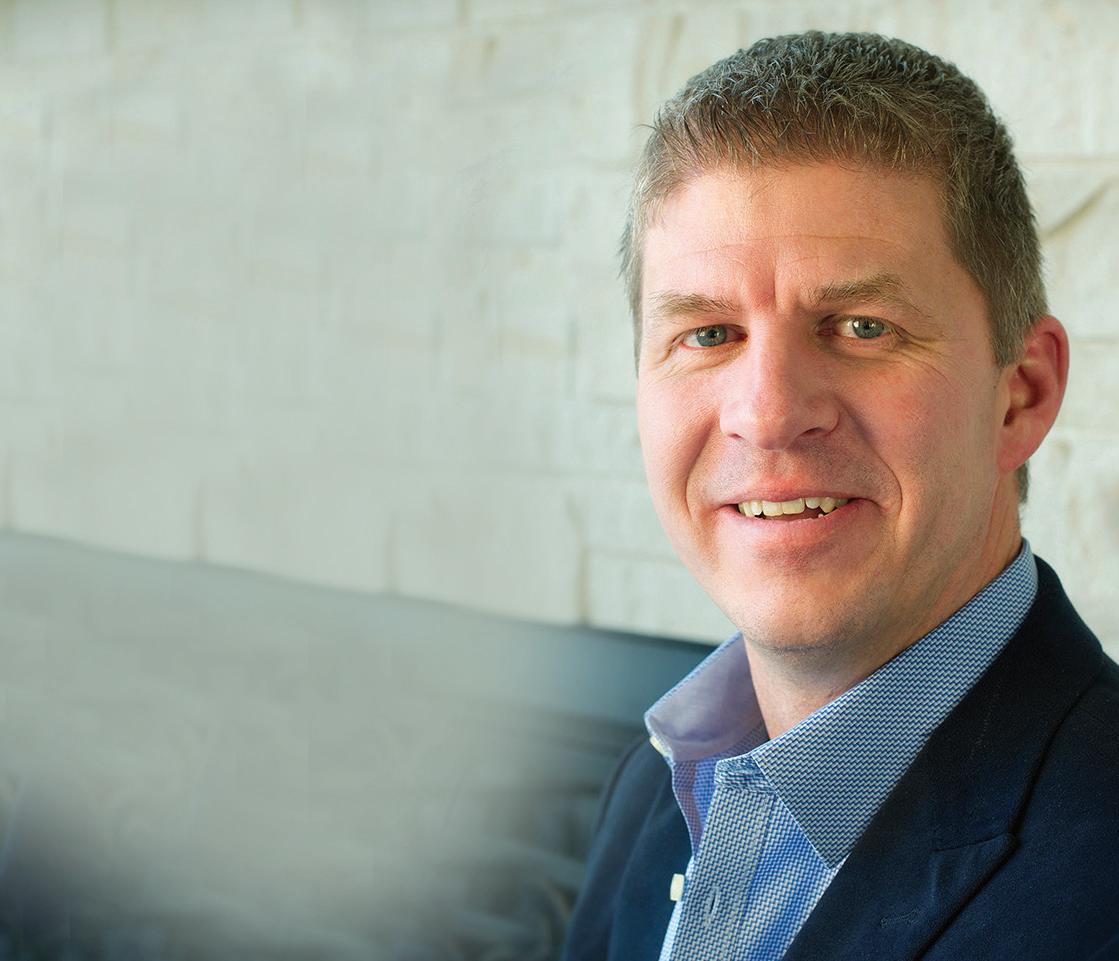





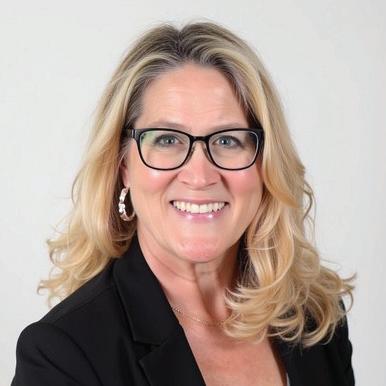
Erica Conway has tenacity, creativity and courage and has provided unwavering support to the creative community for more than 20 years, according to Luci Klebar, director of sales and marketing at Saint John’s on the Lake.
Conway leads staffing agency C2 Graphics Productivity Solutions and talent marketplace Talimer, both based in Milwaukee.
“Erica continues to find ways to innovate and connect people. Despite the recession of 2008 and COVID, Erica and her team have continued to create new opportunities for talent across the country,” said Klebar, a former C2 employee.
Conway co-founded Talimer with Ken Ostermann in 2020 to help connect tech freelancers with job opportunities. Her first entrepreneurial venture was purchasing MacPros Inc in 2004 with her brother, Jim Conway, and then turning it into C2 Graphics, which focuses solely on the staffing and professional development needs of the creative industry.
“Erica’s real superpower is connecting people, ideas and opportunities across southeastern Wisconsin,” said Klebar. “For more than 25 years, she’s remained a driving force for innovation, integrity, mentorship, and bold new ventures.”




In 2010, Rusty Zosel founded Procurement Partners, drawing on prior experiences he had with the purchasing and invoicing processes of operators in the senior living and post-acute care markets.
Now based in Bloomington, Illinois, Procurement Partners provides spend management and invoice automation solutions to the health care industry.
“Rusty built a team that developed and marketed a SaaS platform that provides management of senior living communities with a way of unifying procurement and invoice automation across all spending categories and vendors,” said David Irwin, CEO of gThankYou.
Zosel and his partners took a major investment in Procurement Partners from San Francisco-based Serent Capital in November 2020. Zosel continued as a leader in the business for two and a half more years as it completed acquisitions of two additional health care eProcurement SaaS companies under private equity ownership.
Zosel currently serves as the chief strategy officer for Prime Care Technologies, an advisor for BigCart Technologies, a board member of Milwaukee-based Continuus Technologies and volunteers as a lead curator for the Midwest Founders Community.
We know YOU know the leaders and visionaries in southeast Wisconsin

Chrishella Roché, founder of Vibez Creative Arts Space in Milwaukee, is an educator and artist whose teaching career has spanned the globe, including a tenure in Abu Dhabi, UAE.
“Chrishella brings a rich, multicultural perspective to her work. Her international experiences have significantly influenced her artistic journey, leading her to explore acrylic painting and develop a distinctive paint-pouring technique characterized by vibrant colors and bold designs,” said Kermiath McClendon, impact investing manager at the Greater Milwaukee Foundation.
In 2018, Roché founded Vibez in Glendale to provide a communal environment for artistic exploration. Vibez offers paint-and-sip experiences, workshops and community events, designed to educate and introduce various art mediums to the public.
“Through Vibez, Chrishella continues to cultivate the students in the community by offering creative arts professional and small business development, art exhibit and employment opportunities,” McClendon said. “Under her leadership, Vibez has become a hub for creativity and community engagement, offering events such as acrylic pouring workshops and themed paint parties.”
Notable Latino Leaders spotlights those making an impact and leading the way in their organizations and community.
Nomination Deadline: June 13, 2025
Issue Date: July 21, 2025
Look for these Notable nominations in 2025!
Notable General Counsels
Nomination deadline: July 21, 2025 | Issue date: August 18, 2025
Notable Alumni
Nomination deadline: August 11, 2025 | Issue date: September 8, 2025
Notable Leaders in Supply Chain & Logistics
Nomination deadline: August 25, 2025 | Issue date: September 22, 2025
Make sure the business community meets the people who’ll make a difference in 2025. At companies across southeast Wisconsin, notable executives are running businesses, navigating company restructurings, serving on boards, running marketing departments, and investing in growth throughout the region. The notable individuals profiled in these categories are nominated by their peers at work and in the community. Visit biztimes.com/notable
Notable Leaders in Insurance
Nomination deadline: September 8, 2025 | Issue date: October 6, 2025
Notable Leaders in Commercial Real Estate
Nomination deadline: October 20, 2025 | Issue date: November 17, 2025
Notable Health Care Heroes
Nomination deadline: November 17, 2025 | Issue date: December 15, 2025















BIZTIMES:
withfindingaconstructionpartnerthatcollaboratedanddeliveredprojects
office building. We have developed the capability to travelanddeliverthesamelevelofserviceandexpertisethatourclientshave cometoexpectfromCGSchmidt,wherevertheyneedus.






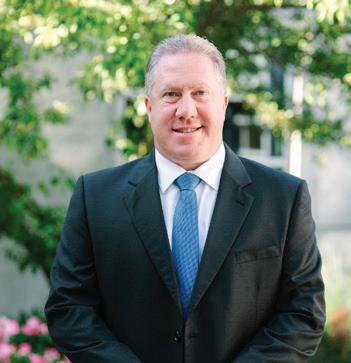










clients.Withourunrelentinggoaltomakeexceptionalourstandard,weare dedicatedtobuildingabettertomorrow,today.


















BIZTIMES: HowisCGSchmidtchangingtosucceedforthenext100years?What are you doing to build that culture? Iviewourorganizationasconstantlyevolvingbyutilizingemerging technologies efficiently to provide real value for our clients. We are going to constructionprojects,andourmissionofcreatingexceptionalfacilitiesthat

JOSEPH CRIVELLO Founder and CEO,
OUT


whothemiddlemarket.It’salsountappedbythesmallmom-and-popoperators,
fordiscerningclients. BIZTIMES:Howdoesyourcompanyfosterinnovation?
andWe’vespentanextraordinaryamountoftimelearningaboutpastsuccesses
Whatopportunitiesdoyouseeonthehorizonforyourindustry?
aviationconsumerswhocameintotheindustryforthefirsttimeduringthe wholepandemic.Andtheyloveprivateaviation.Butmanyarereckoningwithwhat
amultitudeofissues,suchashiringandtrainingpilots.Ortheyaretiredof thatpayingfullpriceforaircraftcharterandhavebecomesavvyenoughtoknow therearebetteroptions.Wehaveseenaninfluxofdemandfromthese






















Showcase your company’s commitment to leadership diversity in this special advertising section.
» Full page Thought Leadership profile in the July 31st issue of BizTimes Milwaukee
» Professional design and editing
» PDF of your profile
» Inclusion on BizTimes.com and in the CEO Q&A pages of the digital edition of BizTimes Milwaukee
» Optional framed plaque






people bond, process stress, and make sense of ambiguous workplace dynamics. But these benefits are short lived and come with long-term costs.
GOSSIP IS AS OLD as humanity itself. Around campfires, over coffee, and – these days – in office hallways and Slack threads, people talk about each other. At work, it often appears in whispers and side conversations: “Did you hear what happened in that meeting?” or “I can’t believe she got that promotion.”
It may feel harmless – sometimes even bonding. But when gossip becomes the primary way people connect, it’s more than just idle chatter. It’s a symptom of something deeper: a workplace culture lacking healthy, meaningful ways to build connection.
As a workplace culture consultant, I’ve seen this dynamic in organizations across industries. People want to connect. If they’re not given intentional, purpose-driven ways to do so, gossip rushes in to fill the void. Fortunately, that’s something leaders can change.
Workplace gossip refers to informal, often speculative or critical conversations about people or events – typically shared without full context or consent. While it isn’t always malicious, it’s rarely productive. It thrives in environments where communication is opaque, trust is fragile and people feel disconnected from purpose.
Gossip is no longer a background annoyance –it’s a daily feature of many workplace cultures.
Research shows 58% of employees hear workplace gossip weekly, 1 in 3 hear it daily and more than 90% admit to participating in it.
WHY GOSSIP FEELS GOOD – BUT HURTS MORE
Gossip has upsides. It’s a social tool that helps
» It erodes psychological safety. When people hear others being gossiped about, they fear they’ll be next. That leads to silence and self-censorship.
» It spreads negativity. Gossip often centers on judgment and blame, fueling resentment instead of resolution.
» It divides teams. Gossip creates cliques and in-groups, leaving others feeling excluded.
» It derails productivity. When energy is spent speculating, focus, innovation and collaboration suffer.
So how do we break the cycle?
REPLACE GOSSIP WITH PURPOSEFUL CONNECTION
The solution isn’t to police every conversation – it’s to cultivate a culture in which people feel connected, valued and aligned around something meaningful. Here’s how:
1. Make purpose practical. Mission statements on the wall aren’t enough. Leaders should consistently tie everyday work to shared purpose:
» Start meetings with real stories about how the team’s work made an impact.
» Remind people how their role supports the bigger mission.
» Invite team members to share their personal “why” for doing this work.
2. Use core values as everyday tools. Most organizations have core values—but few use them well. To bring them to life:
» Highlight when someone demonstrates a value in action.
» End meetings with “value shoutouts.”
» Discuss how key decisions align with your values.
3. Foster curiosity over judgment. Gossip thrives on assumptions. Replace those with a culture of curiosity:
» Train teams to ask questions instead of jump-
ing to conclusions.
» Normalize respectful, direct communication.
» Equip people with ways to check in – rather than check out – when confused or frustrated.
4. Create micro-moments of connection. Teams that know each other beyond job titles gossip less and support more. Build in opportunities to connect:
» Rotate project teams to break silos.
» Start meetings with light personal check-ins.
» Schedule regular peer appreciation or “get to know you” moments.
GOSSIP IS A SIGNAL, NOT JUST A PROBLEM When gossip is rampant, don’t just try to silence it – ask what it’s revealing. Often, it points to disconnection, unclear communication or unmet emotional needs.
When leaders prioritize purpose, transparency and connection, gossip loses its grip. Because in those cultures, people are too busy building something meaningful together to waste time tearing each other down.


Beth Ridley is a workplace culture consultant, speaker and author. She has 30 years of corporate leadership and management consulting experience and helps leaders improve team engagement, collaboration and outcomes. Learn more at www.ridleyconsultants.com. She can be reached at beth@ridleyconsultants.com.




A new hire was struggling in a fast-paced environment. Instead of focusing on performance gaps, the leader said:
IN TODAY’S EVOLVING WORKPLACE, leaders must drive results while fostering innovation and engagement. One essential yet often overlooked skill is empathy. Empathy is not just a trait but a skill that can be developed. Leading with empathy builds trust between leaders and their employees.
Empathy is the willingness to acknowledge another person’s feelings. It doesn’t mean agreeing or fixing problems – it means acknowledging experiences and circumstances and responding supportively. Many leaders struggle with empathy because they associate leadership with decisiveness and problem-solving. However, true leadership balances strength with understanding.
WHY DO LEADERS STRUGGLE WITH EMPATHY?
Many leaders find it difficult to express empathy due to:
» Frustration with underperformance: Patience can be tough when employees struggle to meet expectations. An employee does not have to be perfect to be acknowledged or cared about.
» Time constraints: Juggling priorities often makes it hard to engage in deeper conversations. Having conversations with employees is an equal priority to cranking out work.
» Discomfort with emotions: Some leaders fear overstepping professional boundaries.
Practicing empathy fosters engagement, accountability, and resilience. Here are real-world examples of empathy in action.
“I see you’re working hard to learn everything. How are you feeling about the training? Where can I support you?”
This acknowledgment opened the door to a productive conversation, leading to additional training and improved performance.
Example 2: Balancing personal challenges and work
A reliable employee suddenly began missing deadlines. Rather than assuming disengagement, the leader initiated a check-in:
“I’ve noticed you’ve been missing some deadlines, which isn’t like you. How are things going?”
The employee shared personal struggles affecting their focus. The leader provided support and temporary workload adjustments, leading to regained motivation and productivity.
Example 3: Resolving workplace conflict with empathy
A leader mediated between two employees at odds. Instead of enforcing a rigid solution, the leader provided each employee with the opportunity to answer empathy-driven questions:
“What’s been frustrating for you in this situation?”
“What changes will help you work together more effectively with ?”
By fostering open dialogue, the leader helped the employees resolve tensions and improve collaboration.
Leading with empathy is not just about kindness; it directly impacts business success. Studies show that empathetic leaders create environments in which employees feel valued and motivated. This leads to:
» Higher engagement: Employees who feel heard and understood are more committed to their work.
» Stronger retention: When leaders show they care, employees are more likely to stay long-term.
» Improved morale: A culture of empathy fosters teamwork and reduces workplace stress.
» Better decision-making: Leaders who consider different perspectives make more informed choices.
EMPATHY INTO LEADERSHIP
Leaders can embed empathy into daily interactions through small but meaningful actions:
» Start meetings with check-ins: A quick “How’s everyone doing today?” shows care beyond productivity.
» Recognize individual needs: Some employees thrive on feedback, while others need space. Understanding these differences improves communication.
» Model vulnerability: Share your own challenges to create a culture in which struggles are normal and solutions are collaborative.
» Encourage peer empathy: Foster a team culture in which colleagues support each other, not just rely on leadership for guidance.
The best leaders will recognize that leadership isn’t just about driving results – it’s about inspiring people to be their best. By developing empathy as a leadership skill, organizations can foster stronger teams, better decision-making and long-term success.

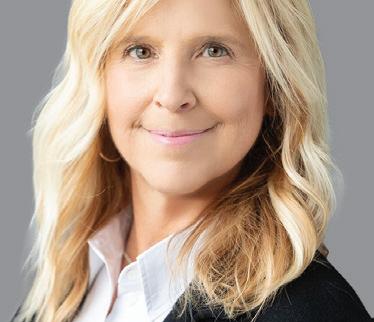
Aleta Norris is a partner and co-founder of Milwaukee-based Living As A Leader, a leadership training, coaching and consulting firm. She can be reached at ANorris@LivingAsALeader.com.



BOEING’S CEO, Kelly Ortberg, blasts “bloated management ranks, wasteful spending and a culture of infighting and shirking responsibility.”
Rohit Manocha, TGI Fridays’ executive chairman, cites COVID-19 and “our capital structure” for bankruptcy. Carlos Tavares resigns as CEO of Chrysler owner, Stellantis, amid loss of market share and plummeting stock price. And, closer to home, when Kohl’s former CEO Tom Kingsbury stepped down earlier this year after two and a half years, he acknowledged “abysmal results.”
We have been reading about these kinds of failures for years. Certainly, these significant missteps are not limited to publicly traded companies. We just get to see the big public blunders because publicly traded companies are required to report results. The same sad story plays out regularly with privately held companies as well.
What happens to the companies that went from great to not so good? How did the CEOs in charge allow this to occur on their watch? And, perhaps more importantly, what are CEOs to do to mitigate the chances of becoming one of the negative statistics?
While far from a complete list with obvious exceptions, here are a few suggestions from Spotify’s Nir Zicherman.
Thinking you have all the answers. 90% of a CEO’s assumptions are incorrect. The problem is the CEO may not know which 90%. Zicherman suggests the CEO do everything possible to challenge his or her convictions and be willing to shed or tweak them when necessary.

Focusing too much on short-term gains. According to Zicherman, short-term wins offer little beyond dopamine hits that stroke the ego. It is better to consider many short-term wins as incremental achievements leading to the true goal. It is a marathon, not a sprint.
The complacency trap. In their book “The Life Cycle of a CEO,” Claud Hildebrand and Bob Stark note that in years six to 10 of their tenure, successful CEOs begin to believe their own press, not realizing that the problems that exist are problems they helped create. Their advice? Stay humble and be willing to question previous decisions.
Bill Ackman, billionaire CEO of hedge fund Pershing Square, adds these potential pitfalls as businesses become too dominant and reliably profitable.
» CEOs get lazy
» Businesses get inefficient
» Bureaucracy grows
» Boards become comfortable
» Shareholders aren’t paying attention
» The CEO spends more time on the golf course
» Companies don’t hire the right people
» They lose their way
Focusing too much on new customers. New markets and new customers tend to look like greener pastures. It looks like more fun. More opportunity. Neglecting current customers, however, causes unnecessary and costly churn. Retaining an existing customer is significantly less expensive than the cost of obtaining a new one. The costs and risks of entering a new market are often understated.
Focusing too much on existing customers. Focus on current customers is critical. But focusing only on existing customer needs, according to Zicherman, sacrifices potential markets and customers yet to be reached or even identified. This “push and pull” of market and product development has humbled even seasoned CEOs. Awareness of the potential out-of-balance bias between existing and new customers is constructive.
Avoiding difficult conversations. While most CEOs are aware of the benefit of healthy conflict within the organization, avoiding conflict – particularly relating to people issues – is treacherous ter-
ritory. CEOs are human. They want to be liked just like the next guy. There is no slack to cut, however, when it comes to the chief executive. Difficult conversations are part of the job description.
Focus on vanity metrics. “There is a reason they are called vanity metrics,” said Zickerman. Accomplishing a goal that looks good but doesn’t align strategically creates the illusion of success. A better option is identifying your desired outcomes and then creating metrics that lead to long-term success.
To paraphrase Inspector Harry Callahan, a successful CEO has got to know his or her limitations. We all have them. They are insidious and dangerous to the health and long-term wellbeing of the business enterprise. Awareness and recognition here are key. Mitigation might be the best we can expect. Or as Stephen Covey put it, “We are limited but we can push back the borders of our limitations.” ■






Dennis Ellmaurer, is a Vistage chair emeritus. He is also an executive coach and consults with small to medium-sized businesses on succession planning and execution. He can be reached at (414) 271-5780 or dennis@globenational.com.


Family-owned businesses, by and large, perform better in times of economic uncertainty compared to those that are not family owned, according to research by McKinsey. Breaking down the factors that contribute to their adaptability and resilience, a 2023 report highlights four crit-
ical mindsets of high-performing family-owned businesses.
1. Focus on purpose beyond profits: Most respondents to McKinsey’s survey of family-owned businesses around the world said their firm has a clear purpose beyond creating value for shareholders. Whether that’s building the company’s legacy or driving positive change in the community, a purpose-driven mindset generates goodwill and fosters employee loyalty, thus leading to better performance.
2. Take a long-term approach: High performing family-owned business “ruthlessly optimize for the longevity and resilience of the organization, even if it comes at the expense of short-term performance.” A family ownership structure – one that is not beholden to shareholder demands – allows these companies to be more patient and deliberate with
their investments.
3. Exercise financial caution: A conservative approach to finances, including debt and high-risk investments, provides a cushion when economic volatility does arise. “Given that they are using their own money, (family-owned businesses) often prefer to invest their funds in marketing, sales, manufacturing, and other parts of the business where there are clear paths for growth and some precedent for returns, rather than invest in high-risk areas such as R&D.”
4. Efficiency in decision making: Respondents cited “centralized but flexible processes and engaged employees” as key to efficiency in decision making. Since big decisions are typically driven by a single leader or small group of family members, there is more decisiveness and fewer levels of approval to move through.
THURSDAY, AUGUST 21, 2025
7:30 AM – 12:00 PM BROOKFIELD CONFERENCE CENTER
Uncertainty is inevitable and change is constant, but strong leaders rise to meet the moment. Join us for the BizTimes Media Women in Business Symposium, a dynamic morning of insight, connection, and growth with women leaders from across southeastern Wisconsin.
Confirmed Speakers:
» Jessie Cannizzaro, Owner/Master Plumber, Milestone Plumbing
» Tami Martin, Director of Workforce Development, Froedtert Health
Moderator:
» Portia Young, Director of Corporate Public Relations, Sargento; Host, Milwaukee PBS


Following the main session, please stay for breakout sessions on topics including:
» Negotiation skills for any situation
» Artificial intelligence
» Leveling up as a leader
» Asking your network for help
» Taking on challenges
» The power of no


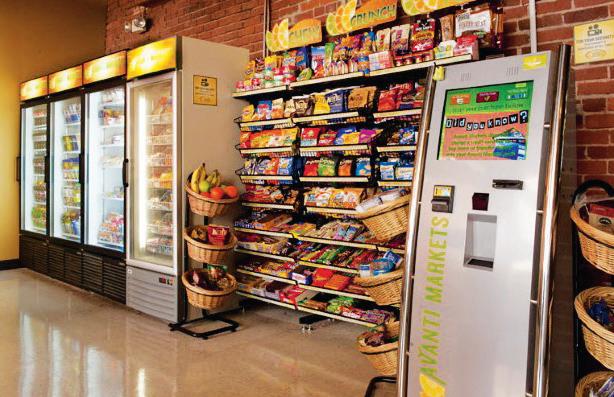









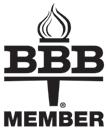


































Showcase your company’s commitment to leadership diversity in this special advertising section.
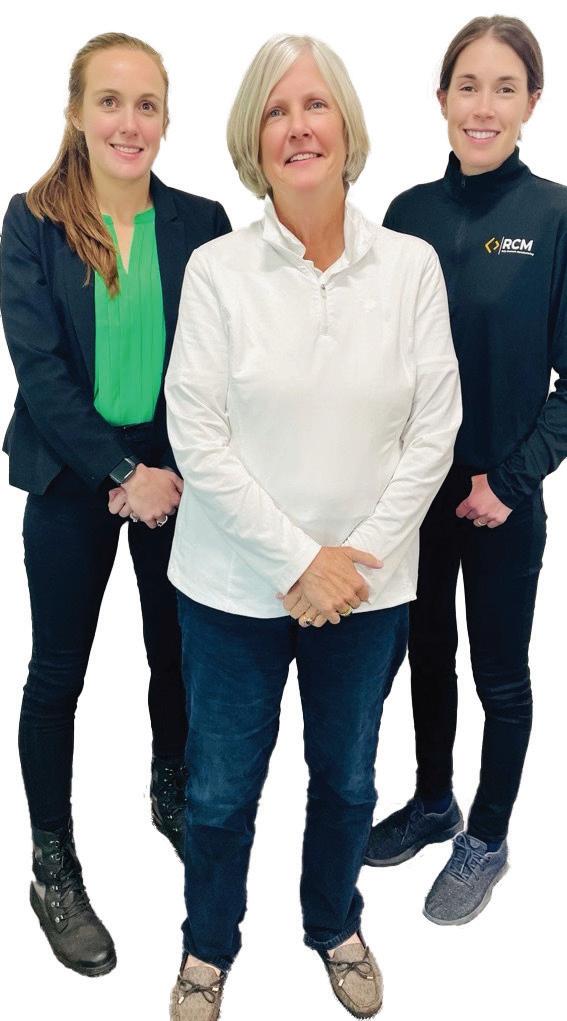




PACKAGE INCLUDES:
» Full page Thought Leadership profile in the August 18 issue of BizTimes Milwaukee
» Professional design and editing
» PDF and optional framed plaque of your profile
» Inclusion on BizTimes.com and in the How She Leads pages of the digital edition of BizTimes Milwaukee


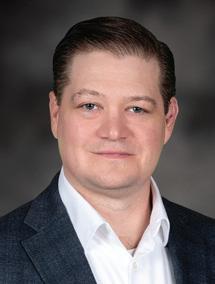
Elliot LePoidevin
Named Executive Vice President Strategic Initiatives at R&R
Named Executive Vice President of Strategic Initiatives at R&R Insurance, Elliot LePoidevin will leverage his extensive experience to lead strategic execution across R&R’s business units, which includes business insurance, employee benefits, personal insurance services and retirement planning. Bringing over 20 years of diverse insurance experience, he began his career at Liberty Mutual shortly after graduating from the University of WisconsinLa Crosse. Since 2015, Elliot has held progressive leadership roles most recently leading Wisconsin operations for a national broker.

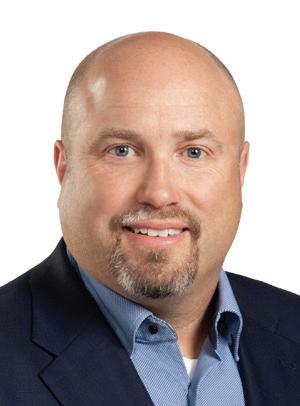
Boldt Hires Jim Joyce as Director of Construction Operations, National Healthcare
With 26+ years of experience, Jim Joyce joins Boldt as Director of Construction Operations for National Healthcare. Known for his healthcare facility design and construction expertise, Jim is a solutions-driven leader ensuring growth.
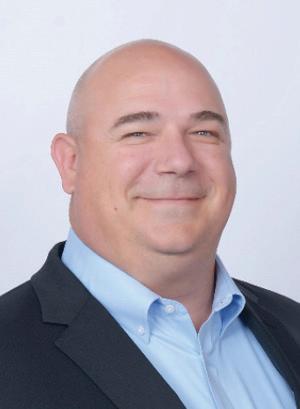
The Hansen Team welcomes a new member to their advisory practice
Jake Peroceschi CFP®, AWMA® is a seasoned professional in the financial industry with an impressive 25-year track record.
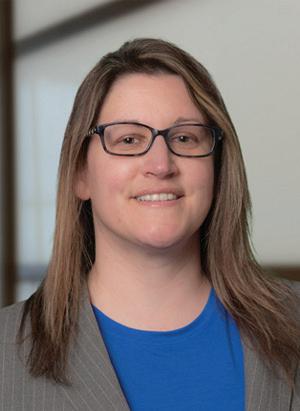
Ashley Ferus joins von Briesen’s Trusts and Estates Section in its Milwaukee office
Ashley is a Tax Specialist/Paralegal and an enrolled agent of the IRS. Focusing on income tax planning for individuals, trusts and estates and preparation of income tax returns for individuals, trusts, estates, partnerships and corporations.
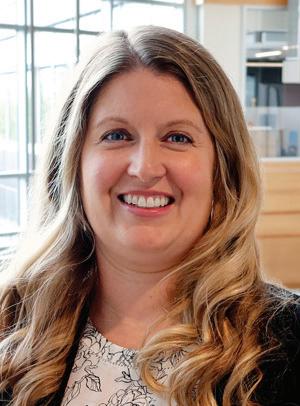
TKDA announces Amber Thomas as vice president for new Milwaukee-area office
Amber Thomas is the new regional vice president of engineering and architecture firm TKDA’s new office in Milwaukee, supporting clients in Wisconsin’s aviation, surface transportation, industrial and manufacturing, and water infrastructure markets.

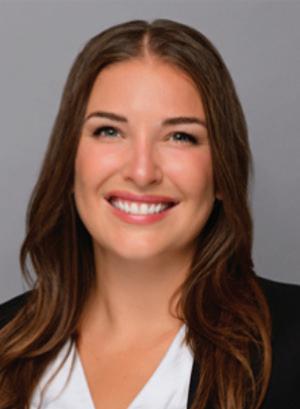
The Hansen Team welcomes a new member to their advisory practice
Merissa McCuen, CFP® has over 10 years of wealth management experience. She helps clients achieve meaningful goals while simplifying personal wealth management.
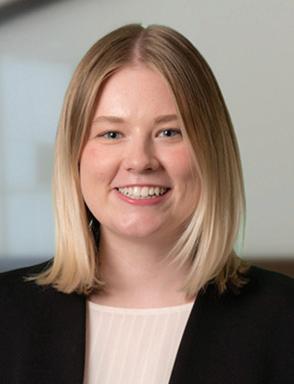
von Briesen Welcomes Reilly Kulas to its Trusts and Estates Section
As an Associate in von Briesen’s Neenah office, Reilly focuses her practice on estate planning and advising fiduciaries in trust and probate administrations. She is a member of the State Bar of Wisconsin.
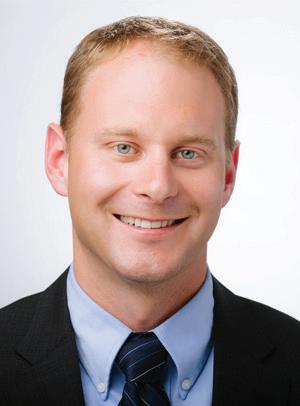
Waukesha State Bank Promotes Meidenbauer to Senior Vice President Waukesha State Bank announces the promotion of Bob Meidenbauer to SVP-Commercial Banking Team Lead. In this role, Bob will be responsible for helping shape the commercial banking department’s sales culture, business development and market visibility.
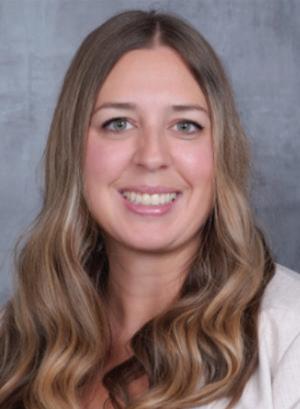
The Hansen Team welcomes a new member to their advisory practice
Amanda Sachs CFP®, ChFC®, CLU® brings over a decade of financial planning experience. She is driven by a passion for helping families navigate their financial futures.
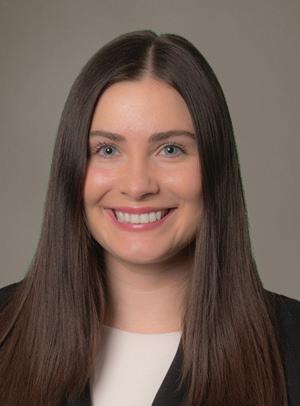
Alexis Witte joins von Briesen’s Trusts and Estates Section
As an Associate in the Milwaukee office, she focuses her practice on trust planning, asset protection, tax planning, business formation and special needs trusts. Alexis is member of the State Bar of Wisconsin, Milwaukee Bar Association and AWL.
To place your listing, or for more information, please visit biztimes. com/bizconnect
Use BizPeople to share:
• New Hires
• Recent Promotions
• Career Updates & Milestones
• Accolades
• Recognition
• Board Appointments
NEW NAME REVEALED FOR MILWAUKEE PUBLIC MUSEUM
When the Milwaukee Public Museum moves into its new building in 2027 it will also get a new name: the Nature & Culture Museum of Wisconsin.
The name change, along with a new logo inspired by the future museum’s architecture, will take place when MPM moves into its new home at the corner of Sixth and McKinley streets near downtown Milwaukee in 2027, MPM announced recently.
The rebrand will not affect the current museum at 800 W. Wells St., which will continue to be called the Milwaukee Public Museum until it closes in late 2026.
Because MPM has been and will continue to be a natural history museum, the future museum will adopt both “nature” and “culture” into its
name. The museum will also swap out “Milwaukee” for “Wisconsin” to better reflect its role as a statewide institution. MPM is the most visited museum in the state and its collections feature items from all 72 Wisconsin counties. The State of Wisconsin chartered the museum in 1882.
“Public” will not be part of the future museum’s name because it will not be owned or operated by Milwaukee County. MPM has been managed by the nonprofit Milwaukee Public Museum Inc. since the 1990s. The nonprofit also owns the future museum building. The county still maintains ownership of collections items.
— Samantha Dietel, staff writer
The American Heart Association will host its “Hard Hats with a Heart” event on Thursday, June 12, at 5 p.m. at the Brookfield Conference Center, 325 S. Moorland Road, Brookfield.
Public Allies Wisconsin will host its “Annual Event” on Wednesday, June 18, from 5 to 9 p.m. at The Ivy House, 906 S. Barclay St., Milwaukee.
The Milwaukee Public Schools Foundation will host its second annual golf outing, “Fore MKE’s Future,” on Wednesday, June 25, at Brown Deer Golf Course, 7625 N. Range Line Road, Milwaukee.
The Wells Fargo Foundation donated $50,000 to Revitalize Milwaukee. | Literacy Services of Wisconsin raised about $147,000 at its annual fundraising gala on May 1. | Siebert Lutheran Foundation and We Raise Foundation granted $300,000 to Kingdom Prep Lutheran High School. | Christian Yelich’s Home Plate Charity Concert raised $175,000 for the Brewers Community Foundation, Visit Milwaukee and the Live Like Lou Foundation. | The City of Milwaukee gifted $200,000 to the Stella’s Playground project, Milwaukee’s first universally accessible and inclusive playground. | AT&T selected the Greater Milwaukee Urban League to have a Connected Learning Center, which comes with a $50,000 award, free internet, Dell computers and access to digital literacy training.

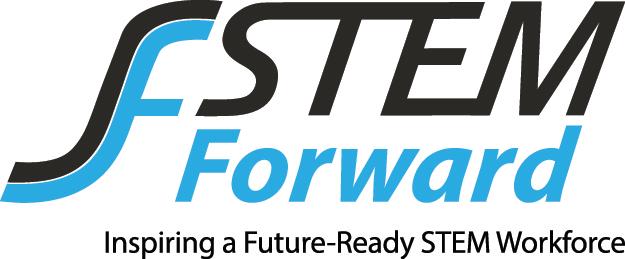
1025 N. Broadway, Milwaukee, WI 53202 (414) 810-7836 | stemforward.org
Facebook: facebook.com/stemforward
LinkedIn: linkedin.com/company/stem-forward
Instagram: @stemforward | X: @STEMForward
Year founded: 1905
Mission statement: To promote STEM (Science, Technology, Engineering & Math) education and career awareness to all students through collaboration with businesses, education, government and the community.
Primary focus: Inspiring K-12 students to pursue a STEM career to help address the STEM talent shortage

Other focuses: To host STEM competitions and provide STEM scholarships for students Number of employees: 3
Key donors: Rockwell Automation, WE Energies, Eaton, Generac, Milwaukee Tool and Komatsu.
Executive leadership: Rich Merkel, executive director

Board of directors: Officers: Jennifer Buchanan (president), We Energies; Be Ware (president elect), Husco; Mathew Hensgen (treasurer), Baker Tilly; Dale Held (past president) Johnson Controls.
Mohamed El Demerdash, GE Healthcare; Rafat Elsharef, Milwaukee Area Technical College; Mark Federle, Marquette University; Sharon Gonzalez, Pieper Power; Prasenjit (Neel) Guptasarma, University of Wisconsin-Milwaukee; Joe Hamann, UWM Connected Systems Institute; Dana Hart, Northwestern Mutual; Meghan Hendricks, Ascension Technologies; Kim Miller, Eaton; David Nowak, Sentry Equipment; Antonio Rodriguez, Milwaukee Public Schools; Mark Rounds, Milwaukee School of Engineering; Cynthia Sternard, Associated Bank; Peter Stipan, PS Consulting; Chris Taylor, Milwaukee School of Engineering; Marisa Vancos, Direct Supply; Joe Zizzo, Zizzo Group
Is the organization actively seeking board members for the upcoming term? Yes
What roles is it looking to fill? Board members
Ways the business community can help: Volunteer their time, make a donation, become an event sponsor
Key fundraising events: Annual Scholarship Fundraiser Golf Outing & Silent Auction – Aug. 14, 2025

Directors: Daniel Ark, Quarles & Brady; Fred Begale, Badger Meter; Jason Berg, Generac; Mary Burgoon, Rockwell Automation;


VOLUME 31, NUMBER 3 | JUNE 2, 2025
126 N. Jefferson St., Suite 403, Milwaukee, WI 53202-6120
PHONE: 414-277-8181 FAX: 414-277-8191
WEBSITE: www.biztimes.com
CIRCULATION: 414-336-7100 | circulation@biztimes.com




This 1963 photo shows the inaugural Lakefront Festival of Art at Veterans Park. The event is an annual fundraiser organized by Friends of Art, the Milwaukee Art Museum’s longest-running volunteer support group. This year’s edition, the 60th in the event’s history, will be held June 13 to June 15 on MAM’s lakefront campus.
— Photo courtesy of the Milwaukee Art Museum. Submit your company’s historic photos at biztimes.com/glance
EARLIER THIS YEAR, we surveyed real estate industry professionals to ask them which communities in the area were the best to work with for development projects, and which ones were the most difficult.
While admittedly an unscientific poll, the results were nonetheless interesting. The City of Milwaukee was the most common pick for “least development-friendly” municipality.
Lately city officials have been doing things to reinforce that perception.
Take the odd controversy surrounding plans for a hotel at the former Bradley Center site in downtown’s Deer District. A developer plans to build a seven-story, 156-room hotel. It’s a solid if unspectacular project that makes perfect sense in an entertainment district.
But some city officials have been pushing back, saying the planned hotel isn’t big enough. How exactly do government officials know how big a hotel should be?
The downtown hotel market has shown signs
of trouble, including The Marcus Corp.’s decision to take 175 rooms off the market at the Hilton hotel and several other hotels in bankruptcy in recent years.
Any new business is a risk. But some city officials want this hotel developer to take a bigger risk. What if a larger hotel is built and it fails? Will the city bail the developer out? No, of course not.
Meanwhile, just across the Milwaukee River from Deer District, there’s still no update on plans for a major development to replace the Marcus Performing Arts Center parking structure. Last year, the Department of City Development announced that it had chosen a Madison-based firm to redevelop the site. The company, called Neutral, has ambitious plans including a 55-story building and two other towers, with a combination of 750 residential units, 190,000 square feet of office space, 40,000 square feet of retail space and a 300-room hotel.
Since then, the Common Council has for some reason taken no action to advance the project. Meanwhile, Neutral has secured financing for a 31-story apartment tower next door and recently completed a 206-unit apartment building in Madison. But the Marcus Performing Arts Center parking structure site project remains in limbo.
ADVERTISING: 414-336-7112 | advertising@biztimes.com
EDITORIAL: 414-336-7120 | andrew.weiland@biztimes.com
REPRINTS: 414-336-7100 | reprints@biztimes.com
PUBLISHER / OWNER
Dan Meyer dan.meyer@biztimes.com
DIRECTOR OF OPERATIONS
Mary Ernst mary.ernst@biztimes.com
COMMUNITY
ENGAGEMENT / OWNER
Kate Meyer kate.meyer@biztimes.com
EDITORIAL
EDITOR
Andrew Weiland andrew.weiland@biztimes.com
MANAGING EDITOR
Arthur Thomas arthur.thomas@biztimes.com
ASSOCIATE EDITOR
Maredithe Meyer maredithe.meyer@biztimes.com
REPORTER Samantha Dietel samantha.dietel@biztimes.com
REPORTER Ashley Smart ashley.smart@biztimes.com
REPORTER
Sonia Spitz sonia.spitz@biztimes.com
REPORTER Hunter Turpin hunter.turpin@biztimes.com
SALES & MARKETING
DIRECTOR OF SALES
Linda Crawford
linda.crawford@biztimes.com
SENIOR ACCOUNT EXECUTIVE
Christie Ubl
christie.ubl@biztimes.com
ACCOUNT EXECUTIVE
Robin Briese
robin.briese@biztimes.com
ACCOUNT EXECUTIVE
Paddy Kieckhefer
paddy.kieckhefer@biztimes.com
ACCOUNT EXECUTIVE
Christy Peterson christy.peterson@biztimes.com
SALES ADMIN Shannon Whiting shannon.whiting@biztimes.com
ADMINISTRATION
ADMINISTRATIVE
COORDINATOR Sue Herzog sue.herzog@biztimes.com
AUDIENCE DEVELOPMENT
ASSOCIATE/CIRCULATION
Derik Sneide derik.sneide@biztimes.com
PRODUCTION & DESIGN
SENIOR GRAPHIC DESIGNER Alex Schneider alex.schneider@biztimes.com
Independent & Locally Owned — Founded 1995 —
Mayor Cavalier Johnson has an audacious goal to grow the city’s population to 1 million residents (it’s currently 563,531 and has been falling since the 1960s). That goal isn’t realistic, but the idea of trying to drastically increase the city’s population is a good one. Johnson’s administration has been pushing a plan, called Growing MKE, to change regulations making development of certain types of housing easier.
Despite the huge need for more housing options in the city, the mayor’s plan has faced notable opposition. DCD recently released a new housing plan and also unveiled a new policy to assist workforce housing developments, which has been criticized by some developers.
Milwaukee urgently needs economic development throughout the city, and officials need to help and not hinder it. ■
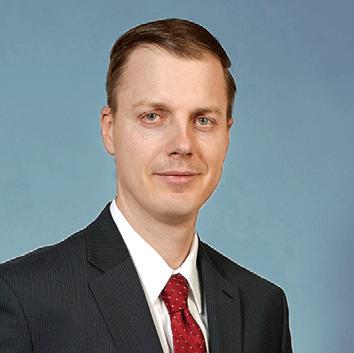
ANDREW WEILAND EDITOR
/ 414-336-7120
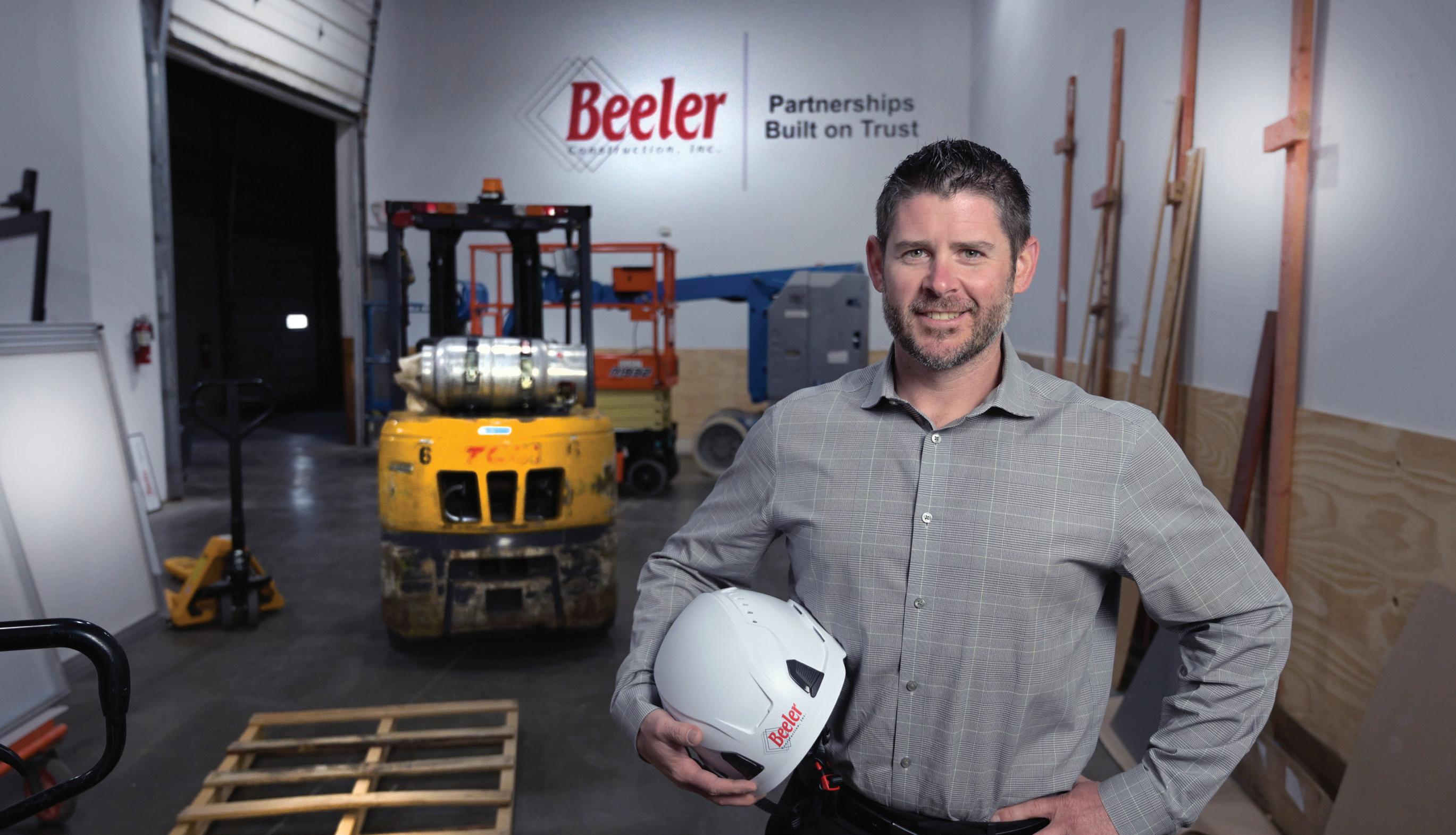
President and owner
Beeler Construction Inc.
Menomonee Falls
Industry: Commercial construction
beelerconstruction.com
Employees: 60
“My grandfather, Don Siebert, and my parents, Mark and Renee Beeler, deeply shaped my work ethic and core values. From my grandfather and mother, I learned to find the positive in any situation and the timeless principle to always treat others with respect. My father instilled in me a mindset of extreme ownership – if you truly want something, you will find a way. There are no excuses or rescues when it comes to doing the right thing, not what’s easy. He also taught me to live below my means and stay grounded, reminding me that life is a personal journey of growth, not a competition.
“Several influential mentors further guided me to align my daily actions with a deeper purpose – to find the ‘why’ in what I do. They helped me develop a long-term vision, starting with a 10-year goal and working backwards through five-year, three-year and one-year milestones, down to quarterly checkpoints and daily habits. Their simple yet profound advice resonates with me, ‘If you don’t know where you’re going, any road will get you there.’”
Align daily actions with deeper purpose. “ ”
AGE: 38
PROFESSIONAL EXPERIENCE: Dave Beeler is part of the third generation of his family to own and lead Beeler Construction, which was founded in 1986 by his grandfather, Curtis Beeler Sr., along with his father, Mark Beeler, and uncle, Curtis Beeler Jr. Dave started working for the family business at age 18 as a carpentry apprentice, advancing to journeyman by age 22. He was a sub-foreman, foreman, and superintendent before moving to the office in 2011 to focus on project management and safety.
He was named president in 2018 and currently owns the company with family members Kim Peterson, CFO, and Chad Beeler, COO. Under his direction, the general contractor between 2020 and 2024 doubled its workforce from 31 to 61 and tripled its revenue from $16.6 million to $54.7 million. n

